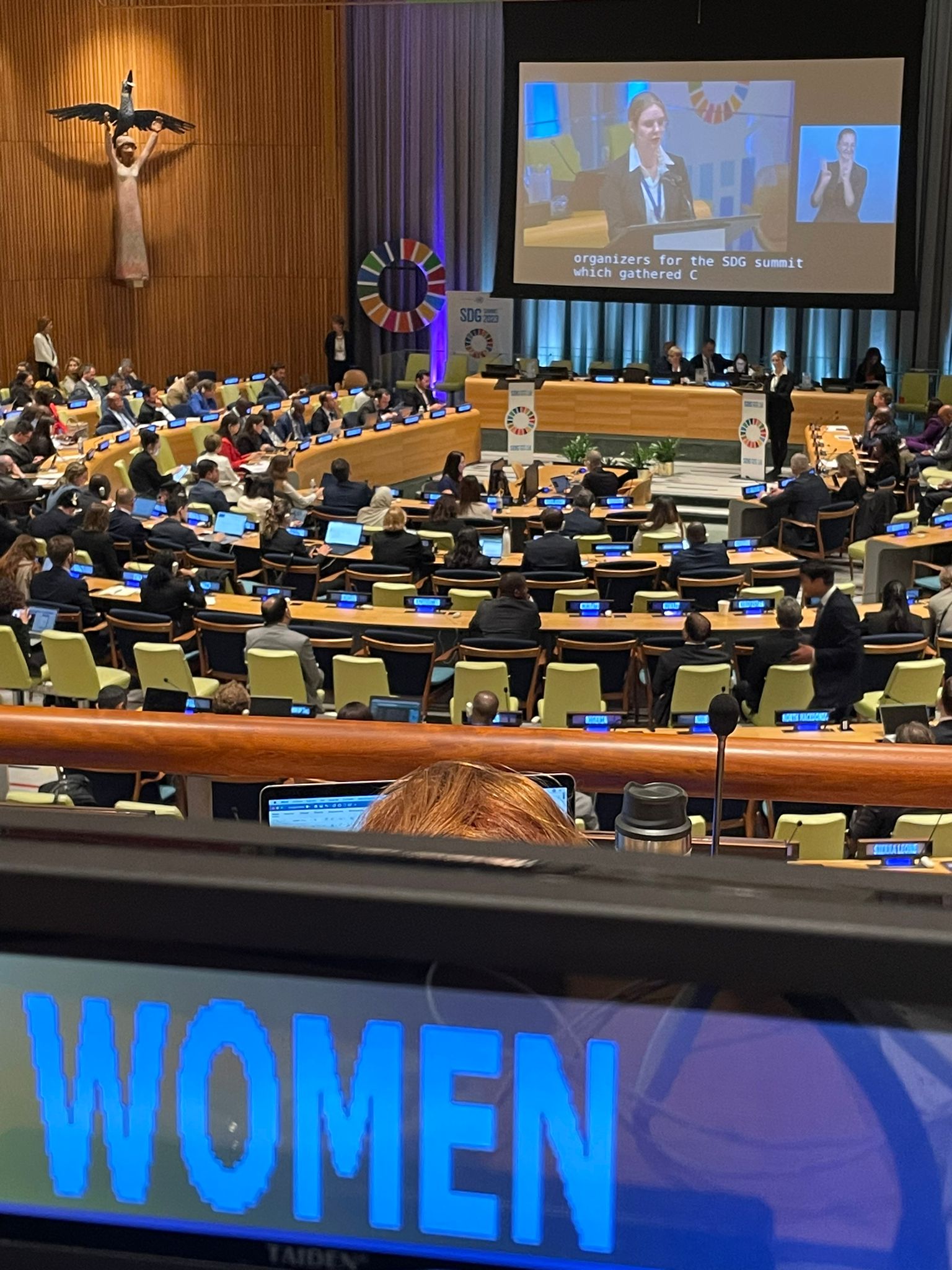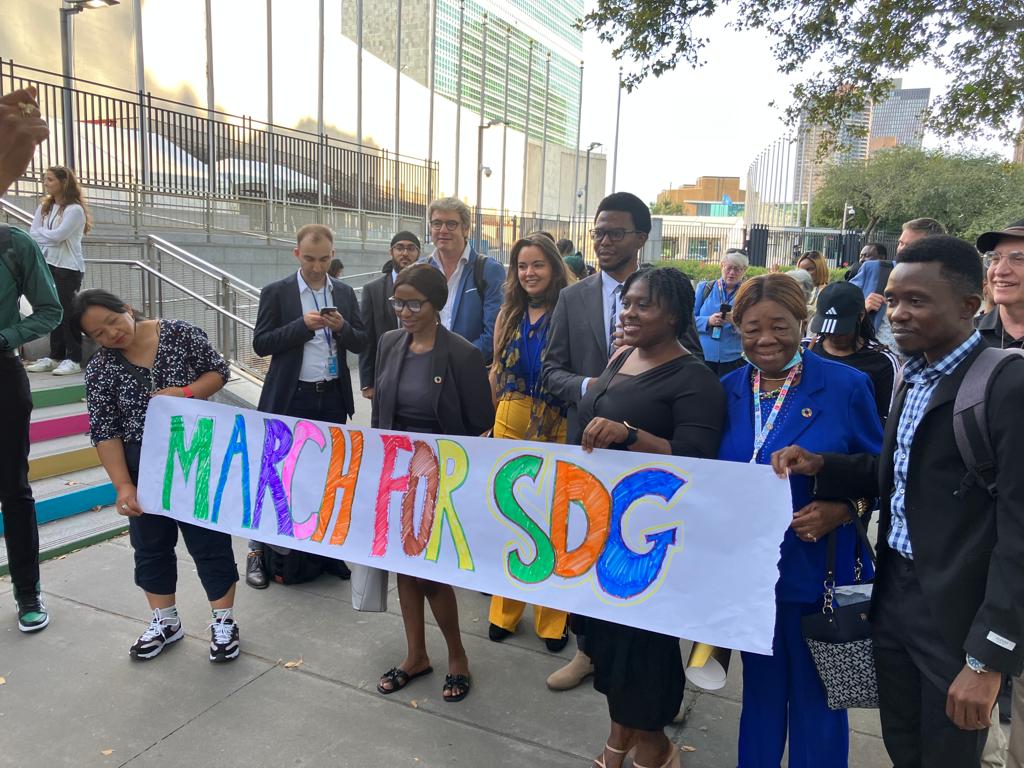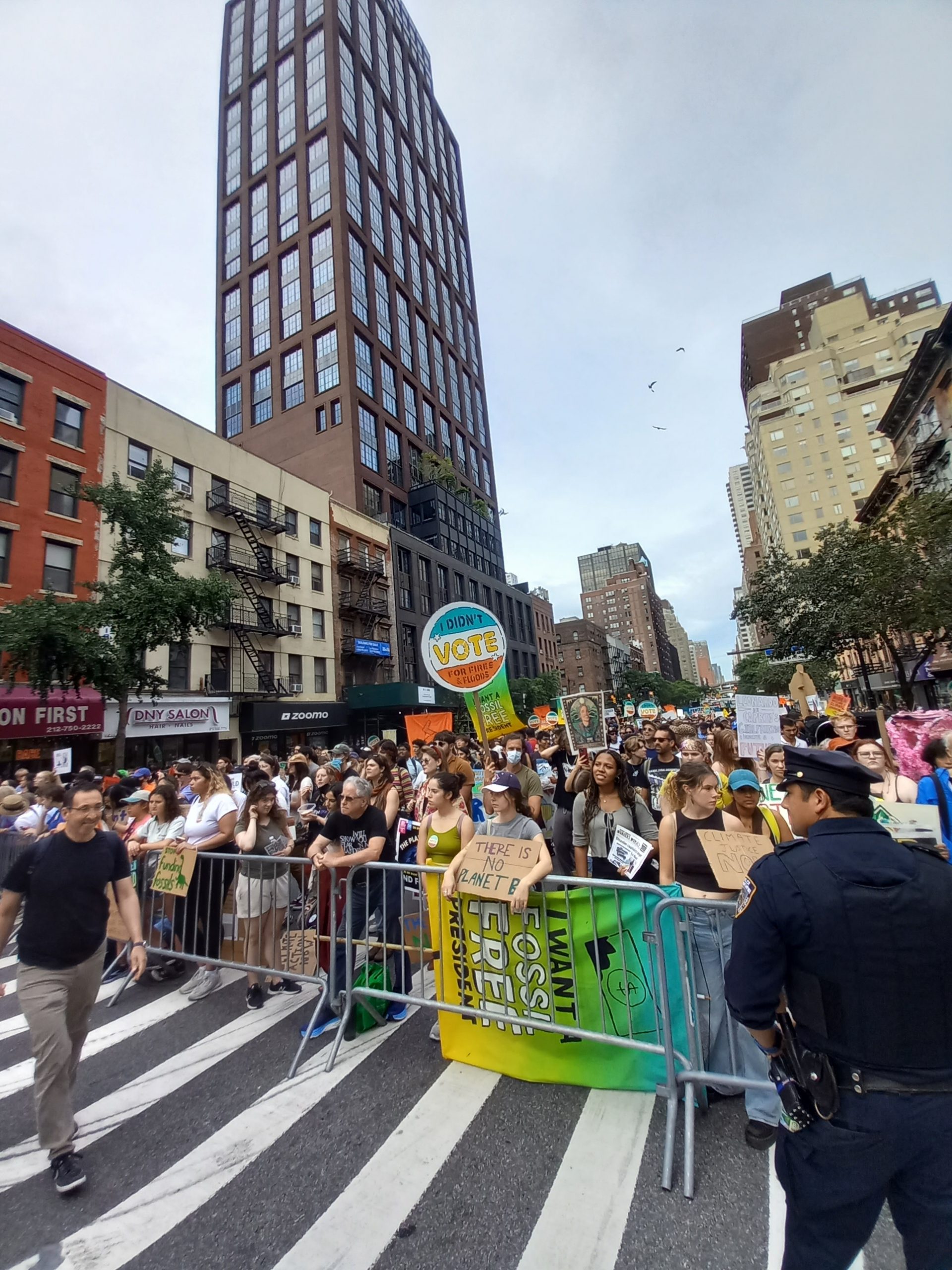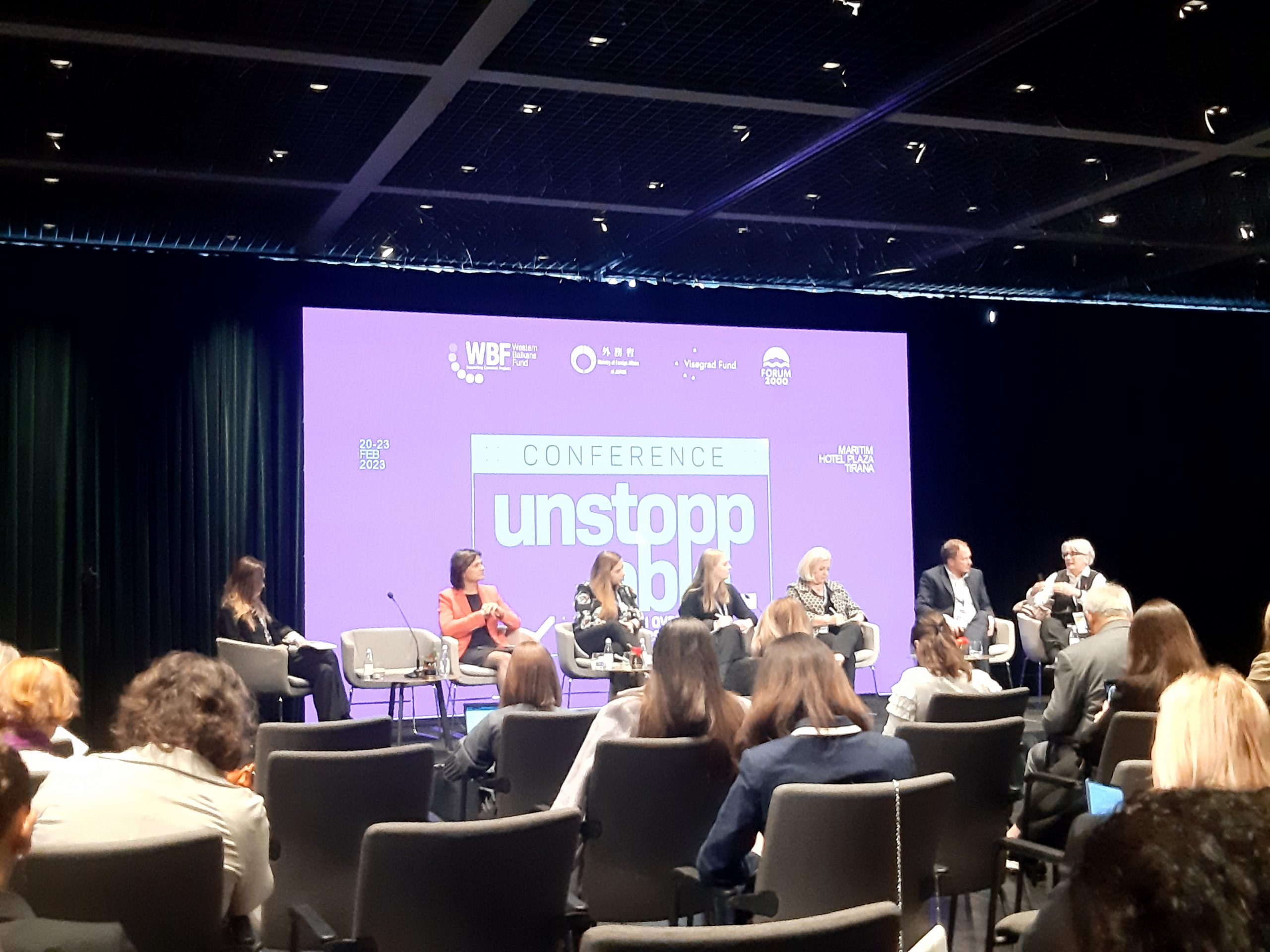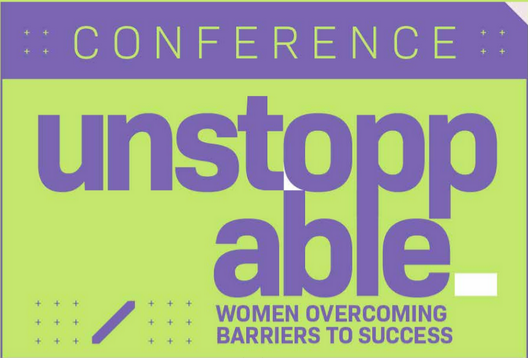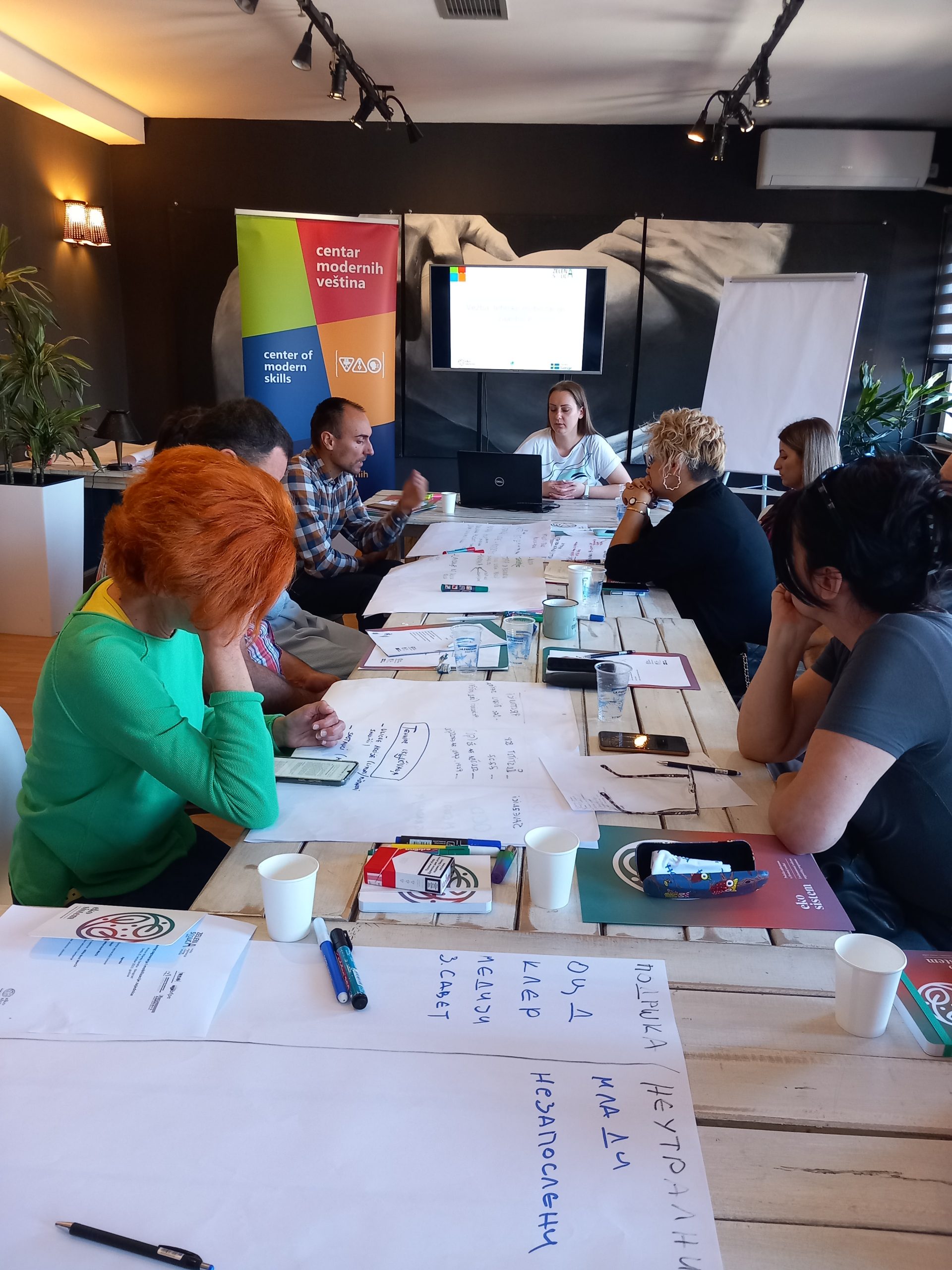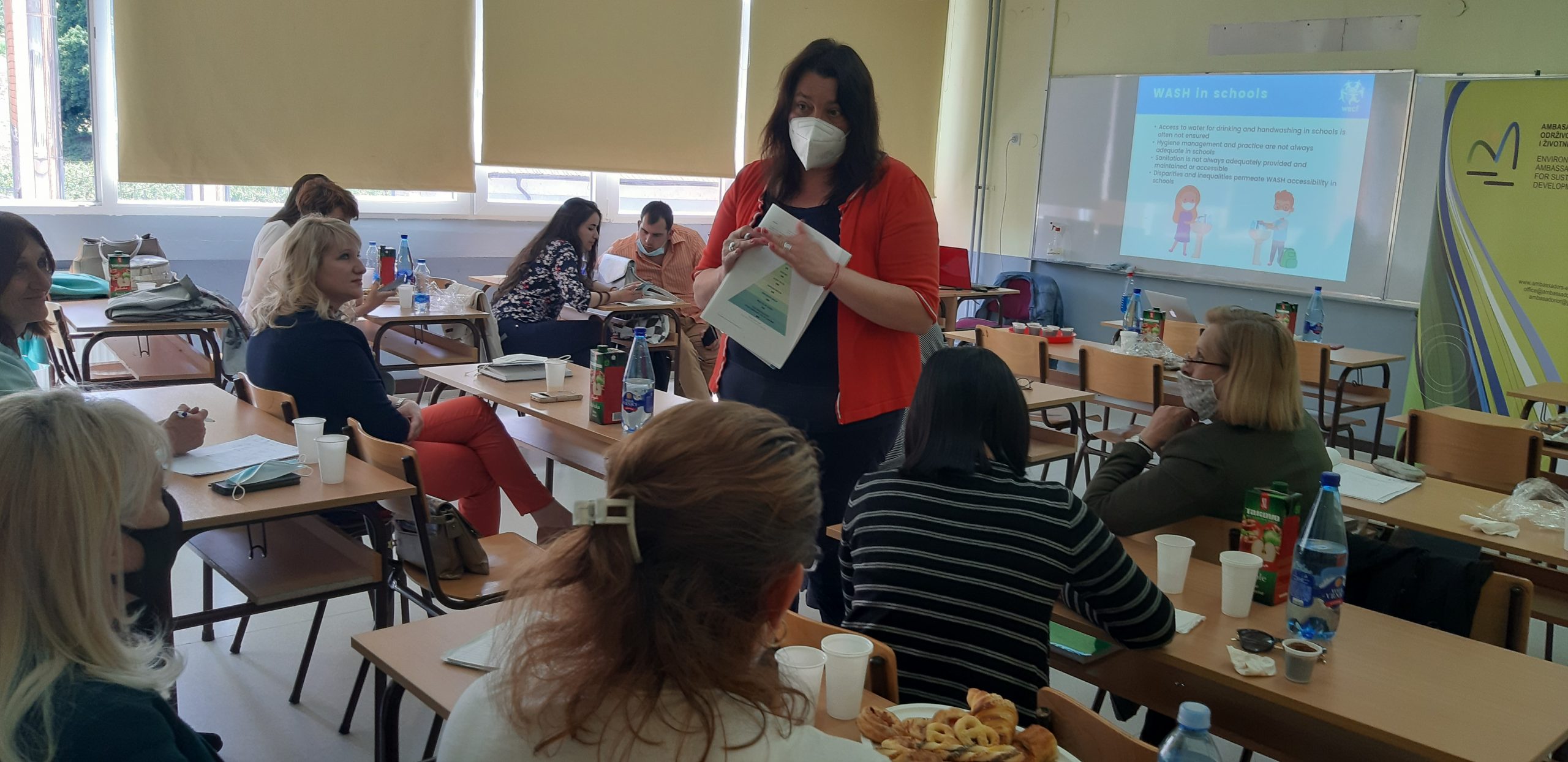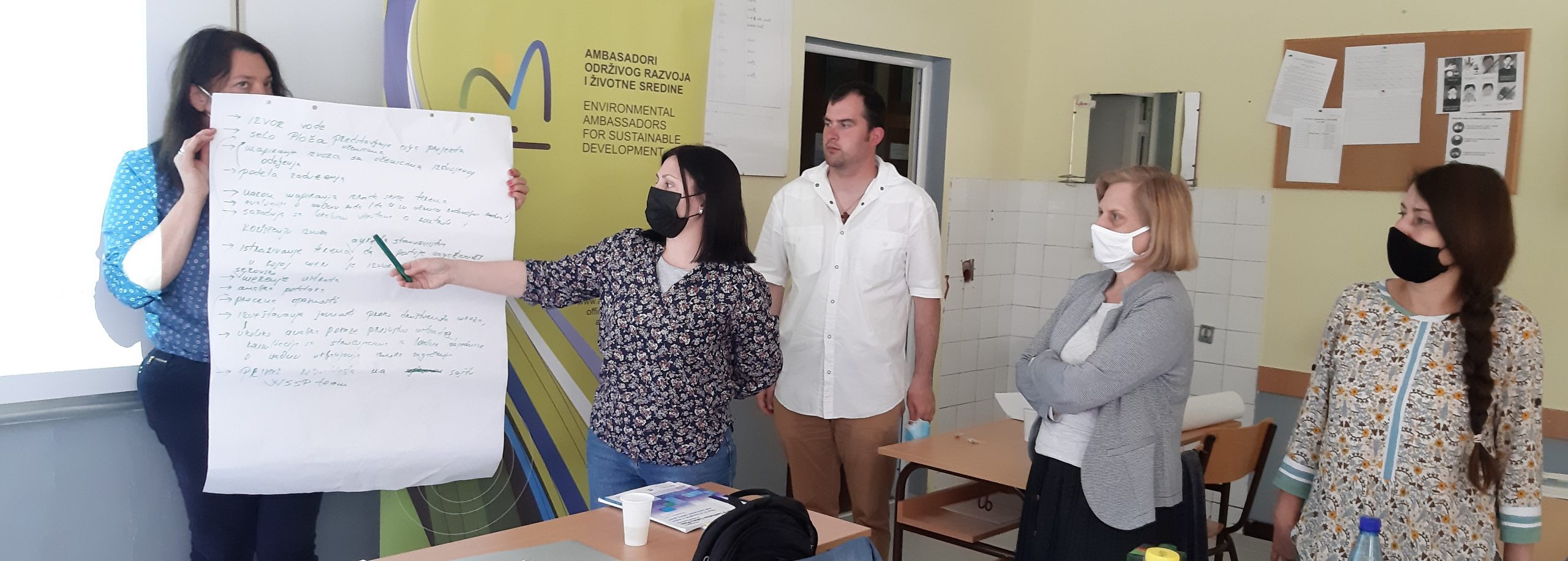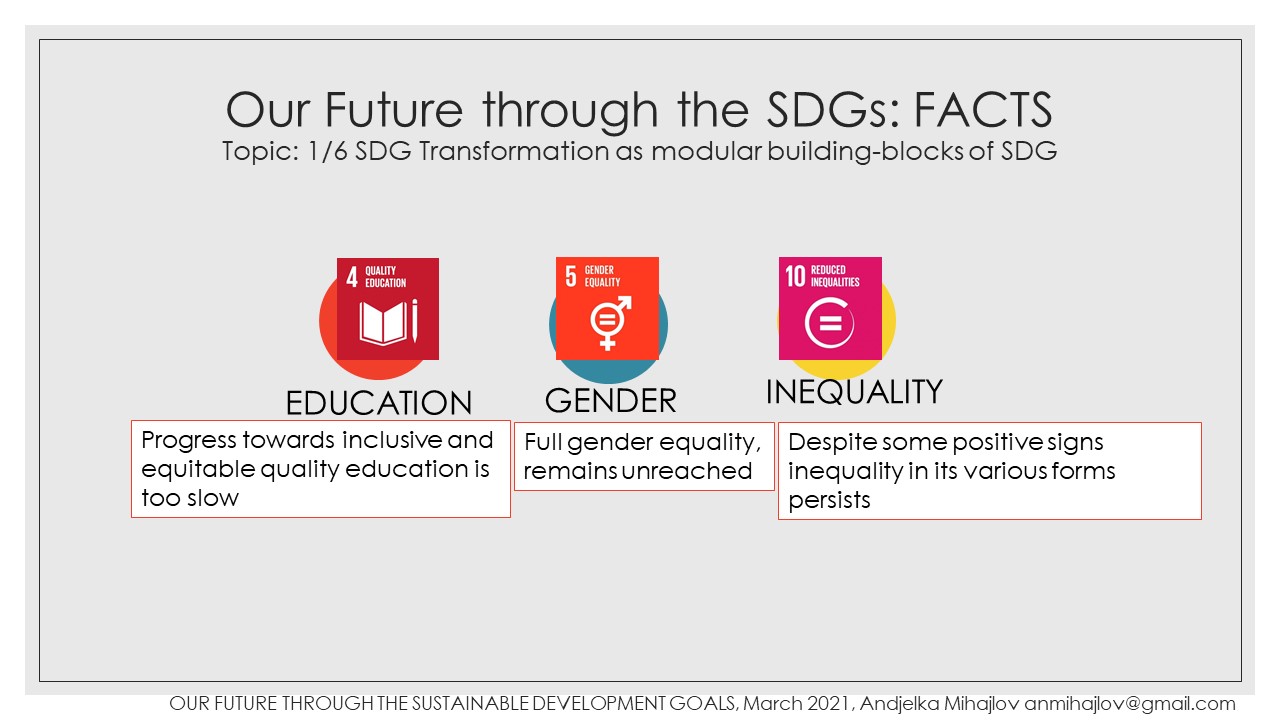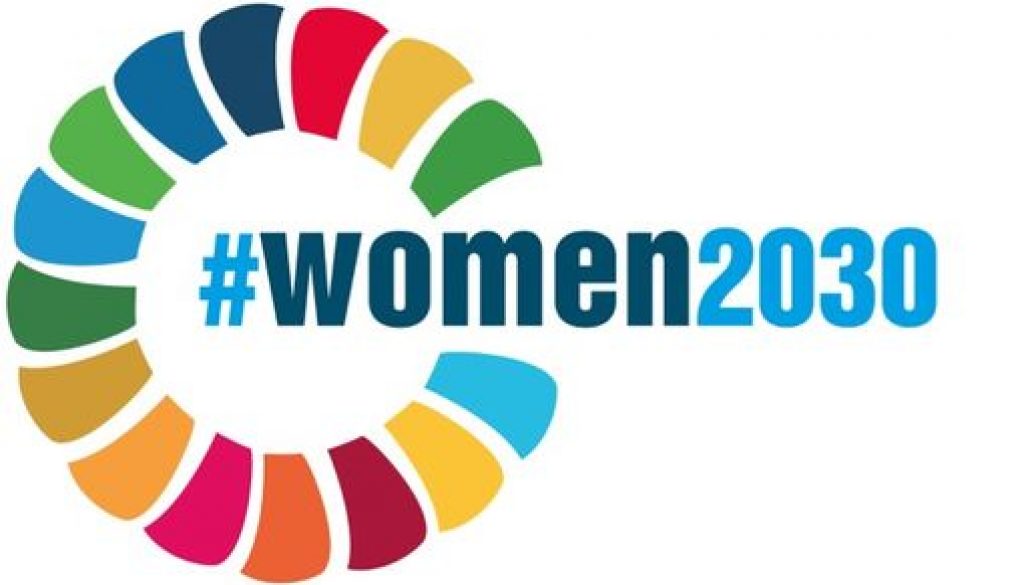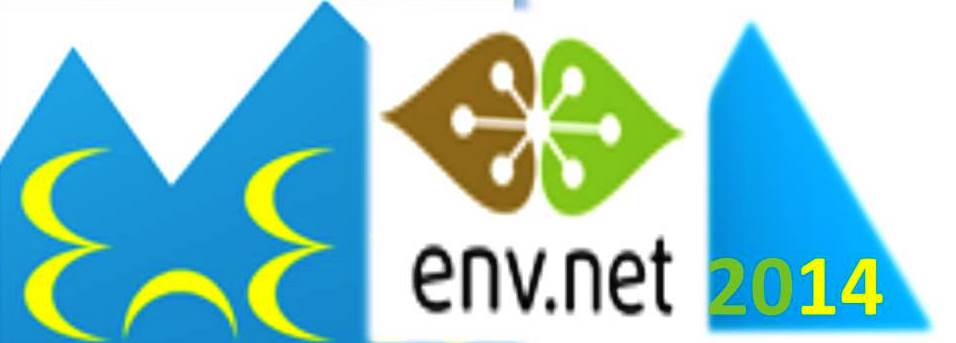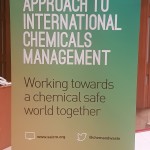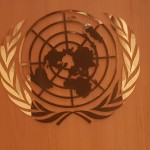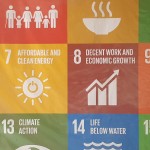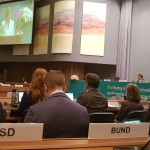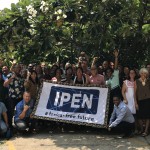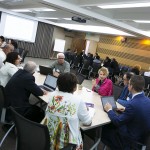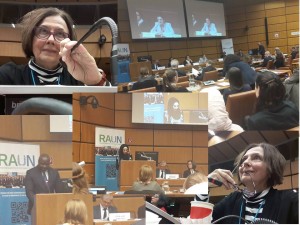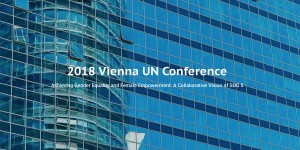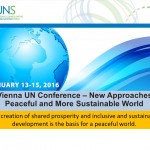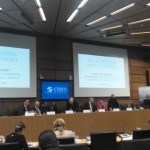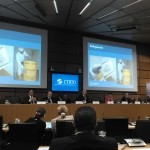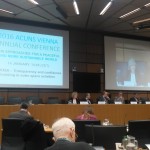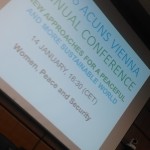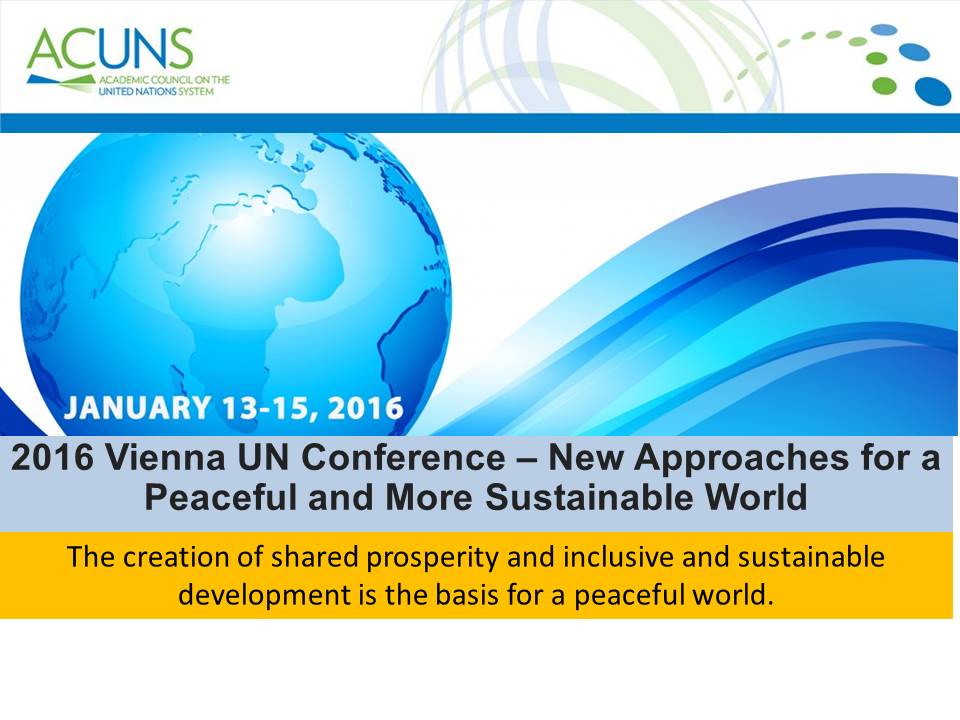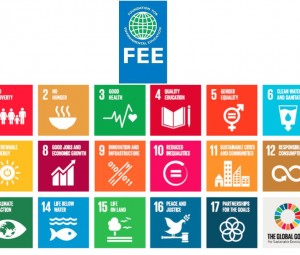The “Green Chair” strengthens the voice of young people and women in environmental protection
The Green Chair Network has received support from the ECO-SYSTEM program for 2024. This program aims to improve environmental protection in Serbia and helps with the implementation of the negotiating platform for Chapter 27. The Environmental Ambassadors of Sustainable Development is a member organization of the “Green Chair” coordination team and a partner in the project.
In 2024, it is planned to carry out activities to achieve…
- Strengthening the voice of young people: Through research and public debate, the “Green Chair” Network will advocate for greater participation of young people in decision-making on environmental protection. The research will focus on the opinions and needs of young people, and the results will be used to advocate for their interests.
- Improving gender equality: The network will focus on empowering women and their more active involvement in all aspects of environmental protection, as well as fertilizing the work of network members. We want women to be leaders in environmental initiatives and the fight against climate change so that their voices are equally important in decision-making processes.
- Sustainability of the Green Bulletin: By digitizing and expanding distribution, the Green Chair will ensure that the voice of the network reaches even more people. The goal is to make information accessible to everyone and to increase awareness and community engagement.
The ECO-SYSTEM Empowerment Programme is the main component of the project ECO-SYSTEM: Support to Environmental Reforms implemented by the Young Researchers of Serbia with the support of the Swedish International Development Cooperation Agency (SIDA). The project started in January 2020 and will run for four years.
ECO-SYSTEM 2024: The “Green Chair” strengthens the voice of young people and women in environmental protection
The Green Chair Network has once again received support from the ECO-SYSTEM program for 2024. This program aims to improve environmental protection in Serbia and helps with the implementation of the negotiating platform for Chapter 27. The Environmental Ambassadors of Sustainable Development is a member organization of the “Green Chair” coordination team and a partner in the project.
The “Green Chair” Network of Organizations brings together 68 civil society organizations dedicated to environmental protection. The network is a key actor in the actions for a sustainable future of Serbia.
In 2023, the members of the network achieved significant results through their work and engagement:
- Education: More than 300 activists have been educated about environmental protection through various workshops and programs.
- Action: Initiatives have been launched to mitigate the effects of climate change in 5 local communities, by raising awareness of the importance of solving this urgent problem.
- Information: The Green Bulletin, the network’s bi-weekly newsletter, has reached a large audience, spreading information on environmental protection throughout Serbia.
In 2024, it is planned to carry out activities to achieve…
- Strengthening the voice of young people: Through research and public debate, the “Green Chair” Network will advocate for greater participation of young people in decision-making on environmental protection. The research will focus on the opinions and needs of young people, and the results will be used to advocate for their interests.
- Improving gender equality: The network will focus on empowering women and their more active involvement in all aspects of environmental protection, as well as fertilizing the work of network members. We want women to be leaders in environmental initiatives and the fight against climate change so that their voices are equally important in decision-making processes.
- Sustainability of the Green Bulletin: By digitizing and expanding distribution, the Green Chair will ensure that the voice of the network reaches even more people. The goal is to make information accessible to everyone and to increase awareness and community engagement.
The ECO-SYSTEM Empowerment Programme is the main component of the project ECO-SYSTEM: Support to Environmental Reforms implemented by the Young Researchers of Serbia with the support of the Swedish International Development Cooperation Agency (SIDA). The project started in January 2020 and will run for four years.
SDG Summit 2023, UN HQ, New York
In the period back to back to the UN General Assembly in New York, the Summit on Sustainable Development Goals was held on September 18 and 19, 2023. Before the Summit, during the weekend of September 16 and 17, the SDG “Action Weekend” was held, as an opportunity for various interested stakeholders, representatives of the UN and member states to meet at the headquarters of the United Nations and present specific commitments and contributions to initiate the transformation of the Sustainable Development Goals from now until 2030.
The activities were divided into two days: “Mobilization Day” on September 16 and Acceleration Day on September 17. During the Mobilization Day, stakeholders from different sectors had the opportunity to gather at the United Nations headquarters and mobilize for the ambitious Sustainable Development Goals Summit and the UN General Assembly’s High-Level Week. “Acceleration Day” focused on high-impact UN initiatives.
Civil society, the private sector, youth, scientists, local and regional governments, feminists and other actors have a key role in the implementation of the Sustainable Development Goals. Their participation, contributions and catalytic mobilization are recognized as essential during the achievement of the Sustainable Development Goals.
The President of the Environmental Ambassadors for Sustainable Development Aleksandra Mladenović, attended the SDG Action Weekend and SDG Summit as a representative of an organization that has ECOSOC consultative status and as one of the representatives of the Women’s Main Group at the UN.
The focus of the Sustainable Development Goals Summit was on the fulfillment of the Goals. According to official data, at the global level, only 15% of the goals have been met so far, and we are halfway to the set deadline (2015-2030). It is obvious that, despite the frequent rhetorical glorification of the importance of the Sustainable Development Goals, there is no strong political will to fulfill the Goals, especially of the major world powers, which “hide” behind the success of smaller countries, who care, because the Goals are directly related on their progress, such as reducing poverty, ending hunger, accessing clean water and addressing climate change. The need to change the global “financial architecture” is increasingly being heard, bearing in mind that developing countries are increasingly stagnating, affected by large debts, which often amount to more than investments in key areas, such as education or health in those countries. Young people also raised their voices, because they are beginning to understand that adults are putting a “hot potato” in their hands, under the pretext that their future is already ruined by the present. The youth made it clear that without defined financial means for the Sustainable Development Goals individually, little or nothing will be able to be done in terms of their fulfillment. More at the link: https://www.un.org/en/conferences/SDGSummit2023/SDG-Action-Weekend
As part of the activities of the interested parties, there was also a two-day session of the “Global People Assembly”, where activists from 145 countries gathered and sent a Declaration demanding urgent action from decision-makers in the field of economic and financial justice, climate change, and the environment. social justice and gender equality, protection of civil society, and human rights. More at the link: https://www.peoplesassembly.global/en/
And last but not least, the Summit on the Sustainable Development Goals was held, and a political Declaration was adopted, covering the different and complementary functions of both sessions of the forum under the auspices of the General Assembly – the Summit and the forum under the auspices of the Economic and Social Council (ECOSOC ). It seems that this Declaration, as well as the Summit itself, have become only a satisfactory form and “first companion” to the main event in the United Nations, which is the General Assembly. More about the Sustainable Development Goals Summit: https://www.un.org/en/conferences/SDGSummit2023/political-declaration
WSSP: Risk management in the water, sanitation, and microplastics sector in the Balkan region
To improve water, sanitation and waste management in Romania, North Macedonia, Albania, Serbia and Bosnia and Herzegovina, the risk management tool “Water and Sanitation Safety Planning” (WSSP) is introduced and thematically extended through various interactive educational measures in schools – including the topics of menstruation and (micro-)plastics. The educational materials are published in Compendia as well as in the online educational platform “Water Classroom” in the respective national languages and are freely accessible. Educational materials at the academic level are developed in cooperation with universities for study programmes relevant to the topic. To improve gender equality, situation analyses on menstrual poverty and gender equality in WASH (water, sanitation & hygiene) facilities and professions are prepared. Recommendations for action will then be developed. This will be accompanied by campaigns for the free provision of menstrual products in public buildings and schools as well as against fiscal discrimination in menstrual products. The aim is to establish a gender-equitable WASH situation in the project countries on a long-term and sustainable basis.
For Environmental Ambassadors this is a continuation of the project successfully finalized with the very important active participation of the Eco-schools network in Serbia.
Kick-off meeting, Sarajevo May 18 and 19, 2023 – Project WSSP
________________________
and more about project…..
In the project countries Romania, North Macedonia, Albania, Serbia and Bosnia and Herzegovina, there is a lack of sustainable water, sanitation, wastewater, and waste management in rural areas, which can have serious consequences for the environment and health of the population. The aim of WECF and the local partner organizations is to further develop or introduce the “Water and Sanitation Safety Planning” (WSSP) instrument in the target countries. WSSP shows methods for risk management for water and sanitation and explains measures to minimize risks and improve the water and sanitation situation.
The online educational portals “Water Classroom” developed in the previous project, on which interactive educational materials on the topics of WASH (water, sanitation and hygiene) and WSSP are already freely available in Romanian and Macedonian, will be translated into Albanian and Serbian and made freely accessible online. In various educational measures, WECF’s WSSP compendium is introduced to Bosnian-Herzegovinian, Serbian and Albanian teachers, pupils and various stakeholders from administration, politics and institutions. In North Macedonia, children with disabilities are included in the educational activities, for which the teaching materials are adapted. In collaboration with North Macedonian and Albanian universities, educational material on an academic level will be developed. Interactive and playful educational materials on microplastics will be developed and used in additional educational activities. Some of the materials will be digitized and included in the “water classrooms”. Menstrual Health Management (MHM) will be a broad focus of the educational activities. In addition, the project partners will prepare a cost-benefit analysis of menstrual products and conduct a survey on menstrual poverty. Subsequently, a campaign will call for the provision of free menstrual products in schools and public buildings. The North Macedonian partners work with gender organizations against gender-specific tax discrimination, e.g. in menstrual products. To analyse gender equality in the WASH sector, data collection takes place in various project countries, on the basis of which recommendations for action are subsequently developed.
Environmental Ambassadors will continue to work with the Eco-schools network in Serbia to raise teachers capacities to deal with the topics Water+Sanitation+Hygiene, in order to be more strengthen to focus the attention of decision-makers, at the local and national levels, on these topics, especially in rural areas.
Unstoppable conference in Tirana – Women overcoming barriers to success
- Environmental Ambassadors for Sustainable Development participated in the Unstoppable conference dedicated to Women and Leadership
The multi-structured and empowering conference dedicated to Women and Leadership is organized in Tirana, from February 20th to 23rd, 2023. Organizer is the Western Balkan Fund (WBF), with the support of the Ministry of Foreign Affairs of Japan and the Visegrad Fund. Every February and March, the WBF with the support of the Ministry of Foreign Affairs of Japan hosts an advocacy event by bringing in national, regional & international experts and creating a space of inspiration, connection, and rejuvenation. The purpose of #Unstoppable conference is to foster equal access to leadership in business, government, and non-profit organizations within the Western Balkans, Visegrad regions, and beyond. This event also promotes support and expands initiatives that promote equal access for women and men in development processes.
The conference includes a multitude of topics across the human rights spectrum, enhancing knowledge and strengthening the network of professionals coming from WB6 and V4 regions also unites diverse stakeholders, researchers, stories, and case studies from all over the region in parallel sessions while offering many networking opportunities.
The goal of the Unstoppable is to foster equal access to leadership in business, government, and non-profit organizations within the Western Balkan and V4 regions and beyond. WBF in close cooperation with V4 partners plans to gather around 120 participant’s men and women around both regions and beyond in Tirana since we believe that gender equality should be addressed by both sides, men and women.
ECO-SYSTEM AND “GREEN CHAIR”: PROJECT “CITIES READY FOR CLIMATE CHANGE”
Consultations and a workshop for the preparation of the proposal of the Strategic Plan of the “Green Chair” network were organized within the third cycle of the EKO-SYSTEM support program “Cities Ready for Climate Change”, in October 2023. The lead partner is the Centre for Modern Skills, and the partners are the Aarhus Centre Novi Sad, the BFPE Foundation for Responsible Society and the Environmental Ambassadors for Sustainable Development. The project aimed to improve further the work and strengthen the “Green Chair” network. The topic of the project is adaptation to climate change at the local level.
During the implementation of the project, another activity was consultations held with representatives of local communities: Kruševac, Pirot, Požega, Sremska Mitrovica and Subotica, to encourage advocacy at the local level, related to climate change.
The representative of the Environmental Ambassadors for Sustainable Development, Aleksandra Mladenovic, supported the preparation of a model of a local initiative for the city of Kruševac, which contains measures to mitigate climate change at the local level. As part of the mentoring work, two online thematic meetings were held, with the team for drafting a local initiative. It includes the concept of measures that will be proposed to the local self-government unit. The mentoring work resulted in greater cohesion of the local team, strengthening mutual communication and reaching an agreement on joint climate action at the local level.
Proposal of measures and recommendations for adaptation to climate change and mitigation of the impact of climate change, for local self-government units
General Measures
1. Include a set of measures and recommendations for adaptation to climate change in the development of spatial planning and strategic documents, Development Plans, and Local Environmental Action Plans.
2. Building, strengthening and improving capacities at the municipal level to a) adapt to climate change to introduce adequate measures into policies and decision-making processes at the local level, b) plan and implementation of climate policies, as well as modeling GHG emissions at the local level, and c) data collection, analysis and use (with a focus on the use of GIS), especially those related to river basins, flood maps, water source protection zones, erosion risk zones, etc.
3. Organizing trainings and seminars on available funds for the implementation of projects directly related to climate change (renewable sources, energy efficiency), joint training and seminars to strengthen institutional capacities and improve multisectoral cooperation.
4. Preparation of educational manuals to improve the understanding of the vulnerability of certain sectors to the impacts of climate change and to build resilience and adaptive capacity of the local community.
5. In cooperation with higher levels of government, strengthen the capacities (technical and human) of protection and rescue services at the local level to undertake organized and effective protection and rescue measures.
6. Establishment of an early warning system for the management of extreme climatic events (for all types of climate hazards: floods, droughts, landslides, forest fires, etc.).
7. Use of digital technologies to monitor extreme climatological situations (e.g. drone monitoring, real-time monitoring, etc.).
8. Establish a single database on droughts, floods and landslides and their damage.
9. Adapt Local Fire Protection Plans in the context of adaptation to climate change; ensure reserve amounts of water, by building or installing water tanks, etc. for effective fire protection (especially in open spaces).
Measures by sector
– Agriculture
1. To improve the knowledge of farmers about the impacts of climate change and to introduce them to examples of good practice from the countries of the European Union, but also from the surrounding countries.
2. In organized agricultural production, establish a hail protection system.
3. Improve irrigation infrastructure and ensure sufficient water for irrigation of arable land, in particular for agricultural production that takes place outdoors and is therefore exposed to weather conditions.
4. Receive and capsulate large waters when they exist and make them available in conditions of need through the construction of artificial reservoirs, which, in addition to the production of electricity, also create conditions for the development of tourism, provide flood protection of the downstream area and provides water for irrigation.
5. Implement measures to improve cooling in agriculture (construction of shelter from the sun, adequate accommodation, installation of fans and sprinklers).
6. Subsidize small agricultural producers, especially in the context of reduced incomes and agricultural yields during dry periods.
7. In agriculture, encourage the use of adequate varieties that are more tolerant to heat and drought, change crop patterns, target land management practices, farm structure, and adaptive capacity of farmers.
8. Application of measures aimed at preventing plant diseases, soil heating, etc.
9. Create the conditions and strengthen the awareness of farmers for adequate management of agricultural waste to reduce emissions from methane.
– Forestry
1. Maximize illegal logging control and implement forest health protection measures (occurrence of pathogenic fungi, occurrence of forest fires, define measures in response to snowstorms, wind gusts, frosts, etc.).
2. Intensify afforestation in landslide-prone areas and land erosion to reduce the risk of new landslides.
3. Establish comprehensive monitoring of areas at risk of erosion and landslides, with the preparation of plans and maps and action plans for prevention and control over their implementation.
– Civil engineering
1. To reduce the risk of landslides, establish continuous monitoring and documentation of illegal and unplanned construction of residential and other buildings and consistently implement regulations governing construction conditions.
– Water management
1. Plan the construction of a system for connection to the sewage network and wastewater treatment plants
2. Provide for continued investment in preventive protection and rescue measures, as well as full coordination with all actors having an impact on floods.
3. Procurement of adequate material and technical means and equipment is important for the provision and organization of all measures that affect the degree of vulnerability of people and material goods from floods.
4. To ensure timely and complete information to citizens about all measures and actions taken by the municipality to reduce the risk of floods, as well as to raise awareness of citizens about the possible consequences of floods.
5. Establishment of uniform inter-municipal and regional flood protection measures and a unified system of warning and notifying the competent structures of the upcoming danger, as well as the need to build a common (single) management system for hydropower facilities that have a regional character.
– Nature protection
1. Application of Nature Based Solutions, such as the maintenance and restoration of natural aquatic ecosystems (e.g. rivers, connecting river channels and meanders), afforestation, restoration and maintenance of grasslands, buffer zones, adequate land management, etc., because nature-based measures are more effective than technical infrastructure for flood protection (embankments, canals, etc.), both in environmental and economic terms.
– Waste management
1. Implement measures to reduce the waste that is deposited and adequate collection of municipal waste (collection networks in rural areas, construction of recycling yards, procurement of specialized equipment for waste collection, as well as activities to educate and raise awareness among the local population about the importance of this topic).
-Gender equality and human rights
1. At the local level, work on linking gender equality and climate change, as well as the realization of equal rights for all, especially vulnerable groups (e.g., youth, Roma, women, persons with special needs…), by implementing climate change mitigation measures.
4th Meeting of the Intersessional Process for Considering SAICM and the Sound Management of Chemicals and Waste Beyond 2020, Bucharest 2022
EASD is participating at the fourth session of the Intersessional Process for Considering the Strategic Approach to International Chemicals Management (SAICM) and the Sound Management of Chemicals and Waste Beyond 2020 (IP4) in Bucharest , August/September 2022. From Serbia, beside Environmental Ambassadors for Sustainable Development (EASD), NGO Safer Chemicals Alternative – ALHem also participated. A summary report of IP4 by ENB which includes also a brief summary of SAICM’s history as well as of the history of the intersessional process.
As the meeting result Co-Chairs’ consolidated text is achieved. achievement, and resume it in early 2023 at a time and venue to be set by the Bureau in consultation with relevant stakeholders.
The UN General Assembly recently adopted a resolution establishing access to a clean, healthy and sustainable environment, a universal human right. At the same time, recent scientific evidence shows that the global threat of plastic and chemical production has exceeded the “planetary boundaries” for chemical pollution. In addition, the global chemical industry is projected to double by 2030, with rapid growth in emerging economies.
The CEE Region recognizes the need for greater cooperation among stakeholders aiming at strengthening the capacities of developing countries and countries with economies in transition for integrated management and promoting the adequate transfer of cleaner and safer technology. Moreover, great deal of attention should be dedicated to raising awareness of chemicals and waste issues among the responsible institutions, agencies, with improvement of the multi-sectorial and multi-stakeholder cooperation.
EASD position (within IPEN umbrella) is to believe that the SAICM is key to advancing the sound management of chemicals and waste considering human health and the environment. Some of important issues pointed out by IPEN include:
– SAICM is the only instrument we have today to address most chemicals and waste but its goals were not met although progress was made. SAICM should strengthen its open, inclusive, participatory and transparent structure which should be multi-sectoral and multi-stakeholder; From our perspective we need an agreement for a strong SAICM-Beyond-2020 Framework that goes beyond the Dubai Declaration and secures ambitious targets for prevention and reduction of harmful chemicals and waste globally bringing about real change.
– The science-to-policy panel should be a tool to raise awareness about the existing scientific knowledge and allow it to take action on emerging issues and issues of concern that were already agreed upon in SAICM; Also, should also have inclusive participation, allow the consideration of different forms of knowledge including from indigenous peoples, and take into account gender-specific dimensions;
– The scope shall include chemicals and all waste throughout their lifecycle.
– That objectives for the industry involvement and other financial commitments are reflected in targets, indicators, and milestones and that monitoring and reporting instruments track progress on financial objectives of the beyond 2020 instrument.
– The framework must also be accompanied by new and additional, adequate, sustainable and predictable funding accessible to all relevant stakeholders to address chemicals and waste issues. The establishment of a funding mechanism following the model of the Quick Start Programme.
The fourth session of the Intersessional Process for Considering the Strategic Approach to International Chemicals Management (SAICM) and the Sound Management of Chemicals and Waste Beyond 2020 (IP4) focused on:
-targets for the post-2020 instrument; -national focal points; -national implementation plans;-how the instrument should deal with issues of concern;-private sector involvement in financing chemicals and waste management; and -the relationship between the instrument and the science-policy panel for chemicals and waste (SPP) mandated -by the fifth session of the UN Environment Assembly (UNEA5).a vision and principles for the instrument;
-identifying targets for the instrument; -how to choose “issues of concern” that would be targeted by the instrument for focused attention and concerted action;-multi-sectoral partnerships;-funding for the secretariat; and -a proposal for a globally coordinated levy on chemical feedstocks to feed a new international fund on chemicals and waste;
– whether, and how, to refer to the new human right to a healthy environment under the instrument’s section on principles; – a possible measurability structure for indicators; – a possible stocktaking mechanism and online tool; -participation in the proposed governing body—the conference—by representatives from the environment, health, labor and agriculture sectors involved in chemical management and safety issues; and – a proposal for a way forward on how to handle existing SAICM issues of concern under the new instrument.
To note that EASD participate and follow SAICM WG on Governance and Mechanisms to support Implementation (from October 2020, lead to IP4 ).
Delegates considered targets in the compilation of draft recommendations for a new instrument as well as new proposals for targets. They agreed to replace the long list of targets with a more limited set of priority targets, grouped under specific strategic objectives. Discussion centered around which targets to keep, which newly proposed targets to include, and which targets might be merged together. See also a table comparing the SAICM Overarching Policy Strategy, SAICM/IP.4/2/Rev.1 “Compilation of recommendations regarding the Strategic Approach and the sound management of chemicals and waste beyond 2020” and the Outcomes of the Virtual Working Groups
On vision, delegates replaced the proposed phrases in the compilation text with three new ones developed by an informal group:
- “Chemical safety for all”;
- “A toxics free planet. Advancing chemicals and waste safety for a healthy future”; and
- “Healthy Planet and People: Making Our Future Chemical and Waste Safe.”
(to note, EASD support Call to action for a tomorrow without toxics )
We must continue working together towards a sound management of chemicals and waste throughout their life cycle, in order to avoid or minimize adverse impacts on human health and the environment!
Call to action for a tomorrow without toxics
Sign the Call to Action here:
https://docs.google.com/forms/d/e/1FAIpQLSecU8_1QRK983bsB1s92c0sHyVBv
adDWW2dW–T_46_JiWjgg/viewform
Urgent call for a strong SAICM-Beyond-2020-Framework ensuring sound chemicals and waste management!
Increasing chemical production, use of harmful chemicals, pollution, and waste are turning into a third planetary crisis[1], beside the climate and biodiversity crises, and at the same time exacerbating them. There is an urgent need for solution-focused actions along the whole lifecycle of chemicals and waste, addressing the threats to human health and the environment – from the enormous use of chemicals, poor chemicals and waste management, to the ever-increasing production and raw material extraction. The undersigned organizations stand together in urgently calling
on governments, industry, and other stakeholders to work towards a tomorrow without toxics. We urge them to actively reduce their chemical footprint and make prevention, reduction, and sound management of chemicals and waste a priority issue.
The current levels of chemicals used in industrial processes, agriculture and daily life products massively expose people and ecosystems to harmful substances.
Ubiquitous, excessive and often uncontrolled use of chemicals, their improper storage and disposal, and accidents, as well as the amount of waste in general and in particular mismanaged waste lead to harmful substances entering the environment, food chains, and human bodies. They poison air, soil and water, harm wildlife and cause biodiversity loss. Exposure to hazardous chemicals produces reproductive and neurological disorders, causes intergenerational effects, and the loss of livelihoods and food systems, among other things. The burdens fall disproportionately on the most financially oppressed, vulnerable and marginalized groups, such as Indigenous
Communities, people in the Global South, workers in industry and agriculture, women and children. This makes chemicals and waste management a cross-cutting issue.
The Strategic Approach to International Chemicals Management (SAICM) and the Dubai Declaration, adopted in 2006 by the First International Conference on Chemicals Management (ICCM1), aimed to achieve sound management of chemicals and waste throughout their life cycle by 2020.[2] Now, at the beginning of the year 2022, we see an even more urgent need for action. SAICM has identified important issues and created a multi-sector platform and multi-stakeholder process for action, involving governments, civil society, businesses and academics. However, the overall objective has not been achieved and progress made is insufficient and mainly limited to information collection, while only a few concrete risk reduction measures have been undertaken. Adverse impacts on human health and the environment from raw material extraction, chemical production, use and disposal continue.
There is no time to waste.
We need an agreement for a strong SAICM-Beyond-2020-Framework that goes beyond the Dubai Declaration on International Chemicals Management[3] and secures ambitious reduction and prevention of harmful chemicals and waste globally, bringing about real change, including the implementation of safe alternatives. Our vision is a world where chemicals and wastes are no longer a source of harm and where all people live in safe and healthy environments, free from toxic threats to ecosystems and to future generations. We call upon all stakeholders to commit to this goal and to increase engagement, expressing a concrete will to end the poisoning of our world. Put a
SAICM-Beyond-2020-Framework urgently into practice as follows:
● Recognize and implement the precautionary and sustainability principles as basic principles and rationale behind all measures. Follow the hierarchy of prevention, elimination and minimization of hazardous substances.
● Include the possibility to stipulate or initiate binding elements for chemicals and waste management throughout the whole lifecycle, including raw material extraction, production, use and disposal of chemicals.
● Set ambitious targets and milestones. Make national action plans binding for all SAICM stakeholders, which particularly promote implementation and monitoring. Include concrete activities to solve the Issues of Concern in SAICM national action plans as well as education and awareness raising measures. Ensure that groups of related chemicals are addressed in the framework and in related action plans
● Establish mechanisms for implementation and progress reporting, and independent monitoring, as well as mechanisms for compliance.
● Realize global implementation on all levels (i.e. local, national, regional and international levels) and ensure this through national action plans. Make a SAICM-Beyond-2020-Framework compatible with other global treaties
including a future legally binding Plastics Treaty[4] or a future international regulation on pesticides[5].
● Secure the multistakeholder and multisectoral character of SAICM. Ensure that the negotiation process is carried out in a way that guarantees equal and fair participation of all stakeholders and right holders, as well as the
possibility to bring in contributions, especially from the civil society.
● Guarantee solid, sustainable, and reliable financing by the internalization of external costs, according to the Polluter Pays Principle. This could be achieved through a coordinated tax on chemical feedstocks, levied by the
national governments where the chemicals are produced[6], ensuring and prioritizing the support for developing and emerging countries. Especially civil society organizations, Indigenous Communities, and science, including citizen science, should be eligible for funding. Further options to implement the Polluter Pays Principle are to be explored and implemented.
● Make sure that a SAICM-Beyond-2020 addresses the identified shortcomings of the predecessor framework and in particular, that solutions for all identified Issues of Concern (IoCs) are developed and new IoCs included when they are needed. Current IoCs must be kept until resolved[7]. This includes e.g. a global phase-out of highly hazardous pesticides (HHPs) and their replacement with agroecology in line with ICCM4 resolution, measures to reduce endocrine disrupting chemicals (EDC) exposure for humans and the environment, and transparency and traceability for chemicals in products.
● Guarantee globally equal safety levels for everyone and everywhere. States must ensure the protection of people and the environment through laws and regulations that hold producers accountable along the entire supply chain
and throughout the whole lifecycle. Eliminate unethical and unacceptable double standards.
● Support the approach of a binding Global Minimum Transparency Standard[8] as a first step for chemicals in products and the establishment of labeling according to UNEP SCP guidelines[9]. This can ensure transparency and
traceability, which are, together with the right to know, key requirements for a safe circular economy globally. It further helps to eliminate double standards and dumping of products in countries with less ambitious chemicals legislation, and to guarantee an equal level of safety for everyone everywhere.
● Ensure sensitivity to the different exposition and vulnerability of people and groups of people to hazardous substances, depending on their area of residence, occupation, social and economic status, age, and gender. Consider
that children are particularly vulnerable to hazardous substances and must be protected from being born pre-polluted.
● Better protect women from hazardous chemicals, by implementing gender responsive policies, mainstreaming gender-equality and collecting gender disaggregated data. Recognize and encourage the leadership role of women in society, politics and science, and also in a SAICM-Beyond-2020-Framework. Consider that women are more susceptible to harmful chemicals than men and have different windows of vulnerability, e.g. during pregnancy.
They are also exposed differently to toxic chemicals due to their gender roles.
● Recognize the principles and values of the universal human rights[10]. Support all right holders, according to the respective international resolutions and declarations[11].
● Recognize the principles of the Rio-Declaration on Environment and Development and the principles of the Agenda 2030, as basic principles.
● Acknowledge the role of chemicals and waste in the biodiversity and climate crises and take action to address these impacts through decreased chemical production, use and disposal, phase out of harmful substances and
implementation of safe and non-chemical alternatives
Urgent call for a strong SAICM-Beyond-2020-Framework ensuring sound chemicals and waste management!
Training for trainers on water safety and sanitation
Within the project “ Water and Sanitation Safety Planning in the Balkan Region: Albania, North Macedonia, Romania and Serbia (WatSanPlan), FKZ 16EXI4004A, Förderprogramm „Exportinitiative grüner und nachhaltiger (Umwelt-) Infrastruktur“ BMU, the first training for teachers of the Eco-school was held in Aleksandrovac. During the two-day training, teachers from primary schools, secondary school and educators from pre-school were introduced to the possibilities provided by the development of a plan for water safety and sanitation, with special reference to the situation in rural communities. In addition to the theoretical work presented by Bistra Mihajlova, a project coordinator on behalf of project leading organization “Women engage for a common future” (WECF) from Germany, participants had the opportunity to exchange their own experiences related to water safety and sanitation in rural areas, where there are many field-departments of Aleksandrovac schools. The topic of menstrual hygiene and how girls and young women are educated in the current conditions was also raised, with general comments that this topic is still taboo in our area and that little attention is generally paid to this topic, through regular curricular and extracurricular activities.
Representatives of one of the partners in the project from North Macedonia, “Journalists for Human Rights”, Nataša Dokovska and Aleksandra, were guest lecturers, who shared their experiences in many years of struggle related to water safety, sanitation, menstrual hygiene and menstrual health. According to research that has been conducted in North Macedonia, Nataša Dokovska pointed out that almost 30% of women in this country cannot afford menstrual products. In North Macedonia, as it is situation in Serbia, they face insufficient education on this topic and an unwillingness to accept it as something that is biologically normal and impossible to pretend not to exist. Among other things, their association advocates that menstrual hygiene be spoken in a gender-neutral language, instead of “products for female hygiene “to be named as “menstrual products”. It is a problem in general that almost 80% of girls know about the menstrual cycle in communication with friends or older sisters in the family, and less often from their mothers or through the education system. The biggest problem in schools is practically that there are no basic sanitary conditions to help girls and women during the menstrual period, so, according to research „Journalist for Human Rights“ realized, in rural areas girls are forced to stay at home during menstruation and to miss classes.
Discussion among teachers from the Eco-schools in Aleksandrovac, there are no such bad experiences in this municipality. However, the positive sign is that through the biology curriculum for the 6th grade, the topic of the menstrual cycle is dealt with, in which boys and girls participate equally.
So far, no more detailed research on menstrual health and menstrual hygiene has been done in Serbia, except sporadic articles in the media and initiatives from the University that can be found. Under this WatSanPlan project, the initial research related to menstrual hygiene and menstrual health will be realized through the Eco-schools program during the school year 2021/2022. The results will show a general observation of water safety, sanitation and menstrual hygiene, which will enable further research and launch advocacy campaigns towards decision makers, primarily related to the availability of menstrual products for free in selected Eco-schools.
The next activity on the project will be training for Eco-schools students on water safety and sanitation in rural communities.
The project “Water and Sanitation Safety Planning in the Balkan Region: Albania, North Macedonia, Romania and Serbia (WatSanPlan)” is supported by the German Federal Ministry for the Environment, Nature Conservation, Building and Nuclear Safety and the European Union. The project is managed by the international organization “Women Engage for a Common Future”. In addition to the Environmental Ambassadors for Sustainable Development from Serbia, the project also includes civil society organizations from North Macedonia, Albania and Romania.
Our Future through the Sustainable Development Goals
Event “Our Future through the SDGs” was held on March 19, 2021, virtually. Environmental Ambassador Prof dr Andjelka Mihajlov (EASD Honorable President) was among the Panelists, with presentation “Education, Environment, Gender and Inequality – 1/6 SDG Transformation as modular building-blocks of SDG”. There were more than 130 participants, with interesting discussion.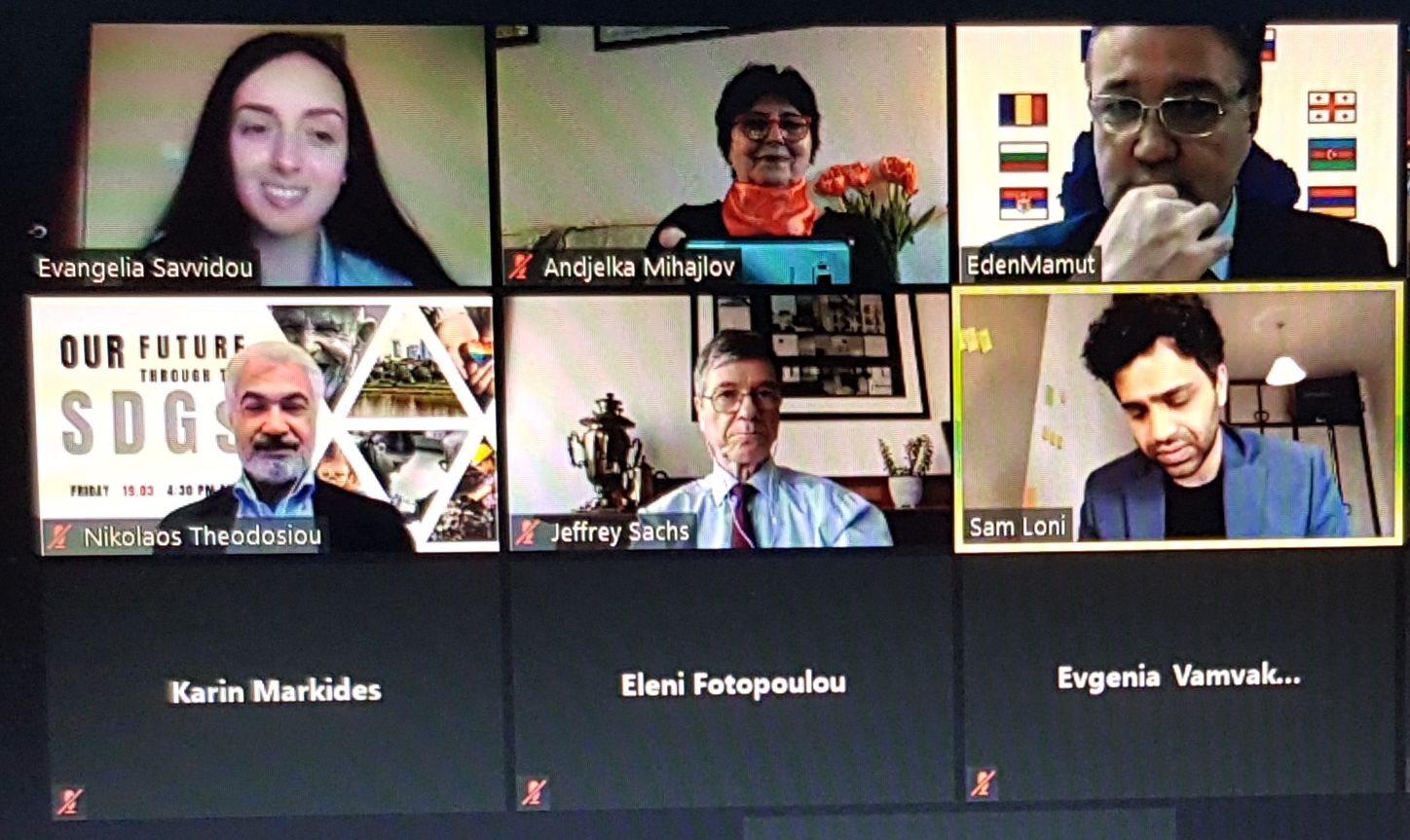
More at http://sdsn-blacksea.auth.gr/projects/our-future-through-the-sustainable-development-goals/
http://sdsn-blacksea.auth.gr/…/our-future-through-the…/
#SDSNYouthBlackSea #OurFuture #Youth #SDGs
Virtually we are in Nairobi: participating at The Global Major Groups and Stakeholders Forum , the fifth meeting of the Open-Ended Meeting of the Committee of Permanent Representatives, Science-Policy Forum and the UN Environment Assembly (UNEA 5.1)
On February 9, 2021, EASD two representatives starts two weeks engagements and participation at: The Global Major Groups and Stakeholders Forum (February 9-11) , the fifth meeting of the Open-Ended Meeting of the Committee of Permanent Representatives (February 15-16), Science-Policy Forum (February 18-20) and the UN Environment Assembly (UNEA 5.1), February 22-23.
We are starting with the consultations considering the following themes: UNEP Mid-Term Strategy, UNEP Program and Stockholm + 50, as well as main messages from Major Groups and Stakeholders to UNEA. To note that Environmental Ambassadors for Sustainable Development is accredited to UNEP participated previously at Regional Consultation Meeting for Europe in preparation for UNEA 5 – RCM for UNEA 5.1, virtual meeting on December 16-17, 2020. Also, EASD was engaged with its preparatory process and exchange views with Major Groups towards UNEA5. This year, Serbian Minister of Environment is Vice President of UNEA.
UNEA 5.1. Messages and selected outcomes:
OUTCOMES OF THE ONLINE SESSION: UNEA-5
Major Groups and Stakeholders Joint Statement to UNEA-5
Statement by the Women’s Major Group
CPR Chair’s Speech on the Report of the OECPR to UNEA-5.1
UN Science-Policy-Business Forum on the Environment ;Event report
…..
Moments from EASD participation at UNEA 4 are available, as well as at Science and Technology Community Meetings and UNEP Network of the Women Ministers and Leaders.
Gender and Chemicals
In 2020 IPEN decided to create a few an online course on IPEN’s learning platform on a specific topic agreed, within IPEN Gender and Chemicals Project. Based on expertise, EASD is chosen to develop and prepare webinar course “Fostering female leadership: training women to address chemicals and waste in the public setting”.
Course will be hosted on the IPEN website.
Women2030 (preparation of Shadow report to the National Voluntary Review 2019)
The Women 2030 Programme is being implemented in 50 countries across different regions of the world. It is constituted by a coalition of four women and gender network organisations cooperating to realize the Sustainable Development Goals (SDGs) in a gender-equitable and climate-just manner. The coalition has a 5-year framework partnership agreement with the European Commission (contract CSO-LA/2016/374-340).
On March 18, 2016, a coalition of four global and regional women and gender networks signed a 5-year partnership agreement with the European Commission to implement the Sustainable Development Goals (SDGs) of the global Agenda-2030. This coalition, known as #Women2030, supports the implementation of the Agenda 2030.
IN SERBIA, Women 2030 partner is EASD, since 2018. Under this project, EASD prepared “shadow report” to the Voluntary National Review that Serbia reported in 2019. The “shadow report” was presented during the HLPF held in New York on July, 2019.
Overview of the community-based data collected within the Women2030 Gender Assessment in Serbia
ENVIRONMENT TO EUROPE – EnE
This project/process present different phases towards European values, as well as globally values promoted through Multilateral Environmental Agreements. Started to raise awareness of the importance of the UNECE Ministerial “Environment for Europe” Belgrade 2007 Conference, and further continuously is mobilizing interesting parties in Serbia and Region to catalyze environmental and sustainable development.
Within “Environment to Europe” Process, EASD actively participate and organize different supporting activities in different related thematic areas, like sustainable consumption and production, efficient resource use, chemicals, eco-consumers protection, participation at global, EC, regional and with papers at different conferences, etc. Regional cohesion projects supported Environment to Europe process.
__________________________________________________
EEB 2022 ANNUAL CONFERENCE – “Boosting the Deal for a Greener Europe in Turbulent Times”
Study visit to Grenoble – the Green Capital of Europe
EnE22, June 2022 – UNEP@50 and World Environment Day
December 2021 – Climate Pact for Serbia: Snapshot targeted rehearsal of country’s obligations in climate action….
Virtual tour on the experience from Italian practices in circular economy
Recap the moments from EnE19/ENV.net Conference
WEBINAR – Regional Forum of Sustainable Development (RFSD) for the UNECE Region : we participate
EASD full member in European Environmental Bureau – honor and challenge
The ESDN Conference 2018 – we participate ; We participate – ESDN Conference 2018, “Stakeholder-Policy Cooperation in the Age of the SDGs: What new approaches are required to be successful?”, Vienna (Austria), 1-2 October, 2018
Join us for June 5th: Conference Agenda is available
6th UN regional meeting on SAICM, Poland, February 2018: we participate
February 2018: Call for participation for EnE18: Nature protection – Nature-Responsive Development
February 2018: ENV.net 3 Kick-off Meeting in Tirana
November 2017: EASD participate: Summit to Plan the End of Amalgam in Europe 2017– November 20-21, Berlin
September 2017: “Make Mercury History” – EASD participated at Minamata COP1 in Geneva
July 2017: Civil Society Forum in Trieste, 11-12 July 2017 – we (EASD) participate ; Good signal: Serbia gets (again) separate Ministry of environmental protection
June 2017: Climate Change Education for Sustainable Development
April 2017: Call: The Thirteenth Regional Conference ”Environment to Europe – EnE17″, June 5th 2017, Belgrade
February 2017: “EnE17 – The 13th Regional Conference Environment to Europe” announcement: Climate Change Education
June 2016: Agenda , EnE16-ENV.net Zbornik radova/Proceedings of papers ; WED Messages from Serbia: 12th Regional Conference “Environment to Europe” , REPORT FROM EnE16-ENV.net, BELGRADE, SERBIA
January 2016 – Save the date and participate: June 6, 2016 – Environment to Europe Conference
June 5, 2015 – 2015 Conference, Information, Proc. of papers
We participate at European Green Week
December 2014 – Thematic Publication “Environment to Europe” ( Tematski zbornik radova “Životna sredina ka Evropi”)
June 5, 2014 – ENV.net multi-stakeholder Conference on Chapter 27: about 200 participants , 2014 Conference
Agenda for EnE14/ENV.net Conference “Environment to Europe”, June 5, 2014 in SCC – opening at 10:00
Invitation for EnE14-ENV.net Conference, June 5 – 2014 in Belgrade
EnE14 / ENV.net Conference will be held on June 5, 2014 in Belgrade (it will 10th regional conference!). Thematic focus: Chapter 27. Reserve the date! More information soon. Follow the updated information related to event.
__________________________________________________
EnE13 – Environment to Europe Conference on June 10, 2013 is focused on local environment. The main messages from this participatory ENV.net event are: environmental sector activities should be knowledge based, and education for environment and sustainable development should be priority. Capacities and continuity is very important for inclusion environment in other sectoral policies. Conference is institutionally supported by Ministry of Energy, Development and Environmental Protection and Ministry of Natural Resources, Mining and Spatial Planning, as well as National Commission for UNESCO. This Conference is UNEP WED event.
| 2013 | EnE13 | ENV.net Roundtable Focus: Local Environment | Agenda, Zbornik radova EnE13 – Zivotna sredina ka Evropi – Papers Proceedings; Minutes; More than 120 participants at EnE13 conference/ENV.net Roundtable: 10 June, 2013 in Belgrade |
Snapshots from the previous EnE “Environment to Europe” Conferences:
| Thematic focus | Published materials | ||
| 2005 | EnE05 | Thematic focus : The importance of Environmental Sector in EU Integration process | Detailed Agenda published.CD Proceedings of Papers published. Book “Sustainable Development and Environment towards Europe in 95+ steps”, by A.Mihajlov, published in Serbian |
| 2006 | EnE06 | European/developed countries values in environmental and related issues; lessons learned. At the same time, the Civil Society Forum EfE07 Meeting towards UN Pan-European Ministerial Conference Belgrade 2007 “Environment for Europe” held. | Detailed Agenda published.CD Proceedings of Papers published. Book “Sustainable Sustainable Development and Environment Towards Europe in 95+ Steps”, by A.Mihajlov, published in English |
| 2007 | EnE07 | Dedicated to contribute to upcoming UNECE “Environment for Europe” (2007, Belgrade) Pan-European Ministerial Conference ; NGO Declaration on Environmental Cohesion of Western Balkan agreed | Detailed Agenda published.CD Proceedings of Papers published. |
| 2008 | EnE08 | Youth and Vulnerable Groups in Environmental EU Accession | Detailed Agenda published. EnE08 Zbornik radova 4. regionalne Konferencije „Zivotna sredina ka Evropi“-sadrzaj published. |
| 2009 | EnE09 | Climate Change and Sustainable Tourism Conference | Detailed Agenda published (agenda EnE09) ; CD Proceedings of Papers published. |
| 2010 | EnE10 | Green Education and Green Economy | Detailed Agenda published ( Agenda EnE10 Konferencije ); CD Proceedings of Papers published. |
| 2011 | EnE11 | Rural and Mountain Sustainable Development | Detailed Agenda published (agenda_ene11) CD Proceedings of Papers published. Publication with selected paper published. |
| 2012 | EnE12 | Learning event for Rio=20 preparation – Green Economy and Governance for Sustainable Development | Detailed Agenda published ( Agenda EnE12 )
CD Proceedings of Papers published. UNDP/UNEP Green Economy Study published http://sustainabledevelopment.un.org/content/documents/984serbia.pdf |
Feminist response to Covid19
EASD is organization working across global movements centered on human rights, sustainable development, and
economic and social justice; partner feminist organisations come together in a moment of collective organizing to outline key principles for a just and resilient recovery from the ongoing global pandemic, as well as to track responses and uplift collective action of feminists around the world.
The COVID19 pandemic is upending economies, changing mobility patterns, disrupting social networks, altering informal and formal workplaces and flows, and redefining the concept of essential work and who performs it. EASD already address the issues at EnE20 Conference, and by E-campaign.
KEY PRINCIPLES FOR FEMINIST RESPONSE TO COVID19 are cross-cutting to all these principles is the promotion, protection and fulfillment of human rights and gender equality:
- COVID19 responses must centre the well-being of all people in an intersection manner
- COVID19 responses must ensure the health and safety of all, including ensuring sexual and reproductive health and rights
- COVID19 responses must promote a comprehensive paradigm shift, relying on adequate and equitable financing
- COVID19 responses must be based on and strengthen democratic values
- COVID19 responses must promote a just and equitable transition for people and planet
- COVID19 responses must be guided by cooperation, multilateralism and global justice
EASD monitored the implementation of SDGs
As one of the partner in Women2030 project, leaded by WECF , Environmental Ambassadors monitored the implementation of the SDGs and collected primary data thanks to questionnaires delivered and focus group discussions organized with community groups. The results presented provide an overview of the community-based data collected through Eco-schools Serbia network, as part of the Gender Assessment.
EASD is participating in Shaping the future beyond 2020
At the United Nations Conference Centre in Bangkok, Thailand, from 1 to 4 October 2019, EASD Honorable President participate at IP3 – The Intersessional Process 3 on Strategic Approach and sound management of chemicals and waste (SAICM) beyond 2020 , and technical briefings held on 30 September 2019, as well as IPEN preparatory meetings on 28 and 29 September.
This is the opportunity to engage in a forum that will determine what key strategies and priorities that will be taken by all IP3 SAICM delegates. Focus are themes: Enabling framework as an umbrella adopted at ICCM5 and ensure high-level political endorsement, Governance and institutional arrangement, Financing SAICM with more contributions from the industry sector and Leading indicators for new SAICM should be outcome oriented rather than process oriented.
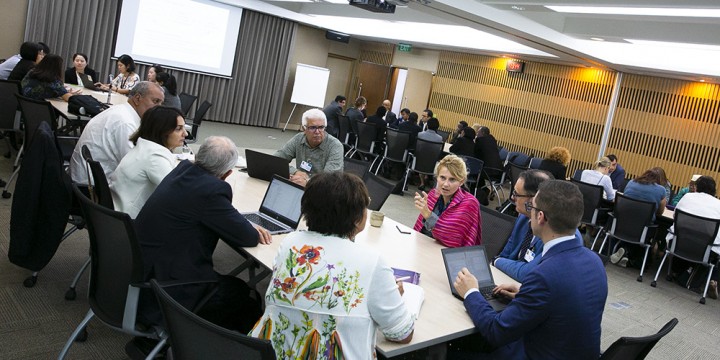
Relevant SDGs goals are: SDG2 – Zero hunger, SDG3 – Good health and well-being, SDG5 – Gender equality, SDG6 – Clean water and sanitation, SDG8 – Decent work and economic growth, SDG11 – Sustainable cities, SDG12 – Sustainable Consumption and Production, SDG14 – Life below water, SDG15 – Life on land, SDG16 – Peace, justice and strong institutions and SDG17 – Partnerships for the goal.
The 2018 Vienna UN Conference
The 2018 Vienna UN Conference was organised by ACUNS in January 2018 for the diplomatic community, civil society, NGOs, academics, business leaders and media representatives to discuss actions, potentials, and challenges linked to SDG 5: ‘Achieve gender equality and empower all women and girls.’
EASD Honorable President participated on January 10, 2018, at Opening Session and Session on Empowering Female Leaders. She is ACUNS Expert; EASD is Institutional ACUNS member.
Participants share best practices and explore potential future collaborations in this multi-stakeholder forum, while spotlighting the International Gender Champions – Vienna initiative.
In the spirit of SDG 17 (specifically, Target 17.17: ‘Encourage and promote effective public, public-private and civil society partnerships, building on the experience and resourcing strategies of partnerships’) an intriguing mix of international stakeholders participated in the 2018 Vienna UN Conference.
EASD activities related SDGs
EASD team , from January 1,2018 will follow activities through SDGs lenses:
SD GOAL 1 – No Poverty SD GOAL 2 – Zero Hunger SD GOAL 3 – Good Health and Well-Being SD GOAL 4- Quality Education SD GOAL 5 – Gender Equality SD GOAL 6 – Clean Water and Sanitation SD GOAL 7 – Affordable and Clean Energy SD GOAL 8 – Decent Work and Economic Growth SD GOAL 9 – Industry, Innovation and Infrastructure SD GOAL 10 – Reduced Inequalities SD GOAL 11- Sustainable Cities and Communities SD GOAL 12 – Sustainable Consumption and Production SD GOAL 13 – Climate Action SD GOAL 14 – Life below Water SD GOAL 15 – Life on Land SD GOAL 16 – Peace, Justice and Strong Institutions SD GOAL 17 – Partnerships for the GoalsIn addition, we are following our activities as UN Environment TOPICS:
AIR CHEMICALS AND WASTE CLIMATE CHANGE EDUCATION AND TRAINING ENVIRONMENTAL GOVERNANCE FORESTS GREEN ECONOMY RESOURSE EFFICIENCY SUSTAINABLE DEVELOPMENT GOALS WATER SCIENCE, INNOVATION ENVIRONMENT UNDER REVIEW ( ENVIRONMENTAL ASSESSMENT, INFORMATION MANAGEMENT).The goal of this activities categorisation is EASD strategic planning of activities in future. It is also lesson learned after EASD representative participation at UNEA3 in Nairobi.
EASD participate at 2016 Vienna UN Conference (Vienna, January 13-15, 2016): sustainable development is the basis for a peaceful world.
Very important institutions are based in Vienna which work for the safe, secure and peaceful use of nuclear energy (IAEA), the peaceful use of outer space (UNOOSA) and the prevention of terrorism, organised crime, and drug trafficking (UNODC). UNIDO is dedicated to the creation of shared prosperity and inclusive and sustainable development – the basis for a peaceful world. CTBTO Executive Secretary, Lassina Zerbo, has reminded us that the 70th anniversary of Hiroshima and Nagasaki recalls the real dangers of nuclear weapons and the need for a total ban on nuclear testing. The recent Vienna Iran agreement and the important role given to the IAEA emphasise the important activities carried out by the Vienna based organisations, including the OSCE. Representatives from these institutions, diplomats, and academics will discuss, in inter- active sessions, the challenges and how the UN system and the international community can deliver to overcome emerging challenges and ensure a peaceful and more sustainable world.
2016 Vienna UN Conference (Vienna, January 13-15, 2016) is focused on New Approaches for a Peaceful and More Sustainable World (Poster).
EASD, as organisation in consultative status in ECOSOC AOR, as well as ACUNS institutional member, participate at this conference. Prof Andjelka Mihajlov, EASD Hon.President participated in the Opening session (chairing by Alistair Edgar, Executive Director, Academic Council on the United Nations System, with speakers: Lassina Zerbo, Executive Secretary, CTBTO, Yury Fedotov, Director General/Executive Director, UNOV/UNODC, Yukiya Amano, Director General, IAEA, LI Yong, Director General, UNIDO, Angela Kane, Former UN High Representative for Disarmament Affairs and Keynote speech by Lamberto Zannier, Secretary General, OSCE), as well as in Session Women, Peace and Security (Chair: H.E. Ayoob Erfani, Ambassador of the Islamic Republic of Afghanistan to Austria, Keynote: H.E. Dubravka Simonovic, UN Special Rapporteur on Violence Against Women, Speakers:Nasra Hassan, Association of Austrian Peacekeepers, Former Director, UNIS, Pericles Gasparini, Chief, Office for Disarmament Affairs, UNODA Vienna Office, Fatou Haidara, Director of the Policy-making Organs Secretariat, Advocacy and Communications, UNIDO, Anna Alvazzi, Research Director, Small Arms Survey Senam Mohamad, European Representative, Rojava Self-Governing Democratic Administration, Alistair Edgar, Director, ACUNS). She noted the importance for SEE countries to recognise multilateralism as the c0-share track to EU accession and sustainable development/resource efficiency/environmental sustainability as the tool and SDGs means of implementation. She promotes Gender Impact Assessment as the indicator for each process.
SDGs as the relevant part of the context within which FEE operates
After a long series of intergovernmental negotiations on various themes,which saw a broad participation from major groups and civil society stakeholders under the guidance of the United Nations State Members, the Goals have been adopted on September 25th at the New York United Nations Summit by 193 Member States. In the same occasion, the UN launched their post-2015 development agenda, in which the Goals are integrated. UN Member States, the civil society and private sector contributors will use this new, universal set of goals, targets and indicators to guide development global efforts over the next 15 years in a concerted international action within the broadest, most ambitious development agenda ever agreed at the global level. The 17 Goals and 169 Targets are meant to be action-oriented, concise and easy to communicate, aspirational, global in nature and universally applicable to all countries, while taking into account the different national realities, capacities and levels of development and respecting national policies and priorities.
The Foundation for Environmental Education with its global network thus needs to frame and highlight its role as a stakeholder and trendsetter in the Sustainable Development process, particularly for environmental, educational and eco-tourism matters. The SDGs will define a relevant part of the context within which FEE operates, thus we are driven to reflect our work in the Goals.
FEE through its mission of fostering awareness, knowledge, participation, commitment, skills, actions and creativity on the environment and on sustainable development, shares the core values behind the set of SDGs. The programmes based on Education for Sustainable Development, such as YRE, Eco-Schools and LEAF show a strong link with the educational Goal (SDG 4) and the Goal on global partnership for sustainable development (SDG 17). FEE’s tourism eco-labels, Green Key and Blue Flag, on the other hand, have a focus on making human settlements inclusive, safe, resilient and sustainable (SDG 11) and on implementing tools for monitoring sustainable development impacts for tourism (SDG 12.b).
Thus, FEE as an umbrella organisation aims at reaching objectives as indicated in the SDGs:
– “Ensure healthy lives and promote well-being for all at all ages” (SDG 3).
– “Ensure inclusive and equitable quality education and promote life-long learning opportunities for all” (SDG 4).
– “Ensure availability and sustainable management of water..” (SDG 6),
– “Ensure access to affordable, reliable, sustainable, and modern energy for all” (SDG 7),
– “Conserve and sustainably use the oceans, seas and marine resources for sustainable development” (SDG14), as well as to
– “Protect, restore and promote sustainable use of terrestrial ecosystems..” (SDG 15).
– “Promote sustained, inclusive and sustainable economic growth..” (SDG 8), particularly to “..Implement policies to promote sustainable tourism which creates jobs, promotes local culture and products” (SDG 8.9).
– “Make cities and human settlements inclusive, safe, resilient and sustainable” (SDG 11).
– “Ensure sustainable consumption and production patterns” (SDG 12).
– “Take urgent action to combat climate change and its impacts” (SDG 13).
– “..Promote sustainable use of terrestrial ecosystems..” (SDG 15).
– “Promote peaceful and inclusive societies for sustainable development..” (SDG 16), particularly to build transparent institutions and promote non-discriminatory policies for sustainable development (SDGs 16.6, 16.b) with a positive, proactive, democratic modus operandi and a strong synergic support to civil society and third sector.
– “Strengthen the means of implementation and revitalize the global partnership for sustainable development” (SDG 17) through a geographically spread, multi-stakeholder approach.
Programmes’ overview:
a) YRE: Young Reporters for the Environment is a network of international youth engaged in environmental journalism and Education for Sustainable Development, where the students investigate an environmental problem and report it to the local community, while, at the international level, they may cooperate with young reporters from other countries for sharing information or data, with the aim of proposing a solution and disseminating it.
The most evident link between the Young Reporters for the Environment programme and the SDGs is found in the Goal 4:
“Ensure inclusive and equitable quality educationand promote lifelong learning opportunities for all” and its subparagraphs“..increase … the number of youth and adults who have relevant skills, including technical and vocational skills, for employment, decent jobs and entrepreneurship” (SDG 4.4) with the aim of learning to think critically, “ensure all learners acquire knowledge and skillsneeded to promote sustainable development, including among others through education for sustainable development and sustainable lifestyles, human rights, gender equality, promotion of a culture of peace and non-violence, global citizenship, and appreciation of cultural diversity and of cultures contribution to sustainable development” (SDG 4.7) for being able to connectwith concrete issues.
The environmental educational programme thus also wish for taking “action to combat climate change and its impacts” (SDG13), specifically for what concerns to “improveeducation, awareness raising and human and institutional capacity on climate change mitigation, adaptation, impact reduction, and early warning” (SDG 13.3) through active solution-oriented learning. The programme canalso help to“promote mechanisms for raising capacities for effective climate change related planning and management, in LDCs, including focusing on women, youth, local and marginalized communities” (SDG 13.b).
YRE is a network of young people educating for sustainable developmentand environmental issues in general, thus it also supportsthe aim of many other SDGs, such as:
“Promotesustainable agriculture” (SDG 2).
“Promote well-beingfor all at all ages” (SDG 3).
“Achieve gender equality and empowerall womenand girls” (SDG 5).
“Ensure availability and sustainable management of waterand sanitation for all”, supporting and strengthening the participation of local communities (SDG6)
“Ensure access to affordable, reliable, sustainable, and modern energyfor all”(SDG7)
“Promotesustained, inclusive and sustainable economic growth, full and productive employment and decent work for all”, developing measures that support creativity and innovation (SDG8)
“Build resilient infrastructure, promoteinclusive and sustainableindustrializationand fosterinnovation”enhancing scientific research (SDG9)
“Make cities and human settlements inclusive, safe, resilient and sustainable … Reduce the adverse per capita environmental impact of cities, including by paying special attention to air quality, municipal and other waste management”(SDG 11)
“Ensure sustainable consumption and production patterns”, raising awareness on sustainable development and lifestyles which are in harmony with nature (SDG12)
“Conserve and sustainably use the oceans seas and marine resources for sustainable development”, aiming to preventmarine pollution and protectmarine and coastal ecosystems (SDG14)
“Protect, restore and promote sustainable use of terrestrial ecosystems, sustainably manage forests, combat desertification, and halt and reverse land degradation and halt biodiversity loss”, promoting the implementation of sustainable management of the forests (SDG15)
YRE helps to “Promotepeaceful and inclusive societies for sustainabledevelopment..”(SDG16)
YRE can encourage to “..Revitalize the global partnership for sustainable development” (SDG17)
The journalistic piece can influence the local communities to take action on various environmental matters
b) ECO-SCHOOLS: A global student-led change process in Education for Sustainable Development which involves also teachers’ training, integration in the school curriculum, environmental reviews, action plans, monitoring and evaluation, informing and involving the local community, setting an eco-code focusing on the various environmental themes (water, energy, waste, global citizenship..).
The programme is fully in line with the Goals:
“Ensure inclusive and equitable quality education and promote lifelong learning opportunities for all” increasing the number of youth and adults with relevant skills and ensuring that all learners acquire knowledge for promoting sustainable development, developinga culture of peace and global citizenship while upgrading education facilities to child, disability and gender sensitive ones as to provide a safe, inclusive and effective learning environment for all(SDG 4)
“Make cities and human settlements inclusive, safe, resilient and sustainable”, strengthening efforts to safeguard the world’s cultural and natural heritagewith a focus on schools’ waste management, resource efficiency and climate change mitigation (e.g. Litter Less Campaign) (SDG 11)
“Strengthen the means of implementation and revitalize the global partnership for sustainable development” (SDG 17).
The implementation of the Eco-Schools programme also works towards the achievement of the aim of more SDGs, such as:
“Ensure healthy lives and promote well-beingfor all at all ages” (SDG 3)
“Ensure availability and sustainable management of water and sanitation for all”, improving water quality and water-use efficiency with pollution reduction, minimizing the release ofhazardous chemicals, halving the proportion of untreated wastewater,increasing recycling or safe reuse and ensuring sustainable withdrawals together with the strengthening of the participation of local communitiesfor such purposes (SDG 6)
“Ensure access to affordable, reliable, sustainable, and modern energy for all” increasing the share of renewable energy and energy efficiency, with the result of creating also savings (SDG 7)
“Promote sustained, inclusive and sustainable economic growth, full and productive employment and decent work for all”with the improvement of resource efficiency in consumption and production as to endeavour to decouple economic growthfrom environmental degradation (SDG 8)
“Build resilient infrastructure, promote inclusive and sustainable industrialization and foster innovation” (SDG 9)
“Ensure sustainable consumption and production patterns”, using the natural resources efficiently, reducing the waste generation (including the food waste) and managing sustainably the chemical products (SDG 12)
“Take urgent action to combat climate change and its impacts”specially improving education, awareness raising and capacity on climate change mitigation, adaptation, impact reduction and early warning (SDG 13)
“Protect, restore and promote sustainable use of terrestrialecosystems..” (SDG 15)
“Promotepeacefuland inclusivesocietiesfor sustainable development… and build effective, accountable and inclusive institutions at all levels” highlighting the theme ofsocial justice(SDG 16).
c) LEAF: Learning About Forests wants to encourage environmental education through awareness raising among students, teachers and the wider school community, to increase knowledge about the key role forests play for sustainable life on our planet, reflecting their cultural, ecological, economic and social functions, with themes as biodiversity, climate, products or services, codes and myths.
The key Goals linked to the Learning About Forests programme are:
“Ensure inclusive and equitable quality education and promote lifelong learning opportunities for all”, increasing the number of youths and adults who have relevant skills and ensuring that all learners (referring to the whole school community) acquire knowledge and skills needed to promote sustainable development, including through education for sustainable development and lifestyles in harmony with nature (SDG 4)
“Ensure availability and sustainable management of water..”, protecting water-related ecosystems and supporting the participation of local communitiesfor improving water management(SDG 6)
“Protect, restore and promote sustainable use of terrestrial ecosystems, sustainable manage forests, combat desertification, and halt and reverse land degradation and halt biodiversity loss”, ensuring a sustainable use of terrestrial and inland freshwater ecosystems and their services, including their biodiversity, in particular forests, wetlands mountains and drylands, preventing the extinction of threatened species(SDG 15)
The principles behind LEAF are compatible with the aim of more SDGs:
“End hunger, achieve food security and improved nutrition, and promotesustainable agriculture”, implementing agricultural practices, such as the tree-planting events, which help maintain ecosystems and progressively improve land and soil quality (SDG 2)
“Ensure healthy lives and promote well-being for all at all ages” (SDG3)
“Ensure access to affordable, reliable, sustainableand modern energyfor all” (SDG7)
“Promote sustained, inclusive and sustainable economic growth, full and productive employment..”, endeavouring to decouple economic growth from environmental degradation and devising policies that encourage sustainable tourism which promotes local culture and products, such as jobs related to the forest, while learning to respect the forest community as well as its myths, laws and codes (SDG8)
“Make cities and human settlements inclusive, safe, resilient and sustainable”, strengthening efforts to protect and safeguard the world’s cultural and natural heritage while supporting positive links between the urban and the rural areas as to widen the access to inclusive green and publicspaces (SDG11)
“Ensure sustainable consumption patterns” through relevant information and awareness for achieving sustainable management and efficient use of natural resources (SDG12)
“Take urgent action to combat climate change and its impacts” improving education and awareness raising on climatechange and the role of forests (SDG13)
“Strengthen the means of implementation and revitalize the global partnership for sustainable development” (SDG17).
d) BLUE FLAG: The world’s biggest voluntary eco-label for beaches, marinas and eco-tourism boats works towards sustainable development through compliance with criteria dealing with environmental education and information, environmental management, water quality, safety and other services.
The principles and rules of the programme comply with the content of many Goals:
“Ensure availability and sustainable management of water and sanitation for all”, improving water quality with pollution reduction and minimization of hazardous chemicals release, increasing recycling, safe reuse and water-use efficiency through the usage of sustainable withdrawals as to protect water-related ecosystems also with the support and participation of local communities (SDG 6)
“Promote sustained, inclusive and sustainable economic growth, full and productive employment and decent work for all”improving the resource efficiencyin consumption while devising and implementing policies to promote sustainable tourism which creates job, promotes local culture and products.Blue Flag focuses as well on the protection of labour rights together with the promotion of a safe and secure working environment and the prohibition of child labour (SDG 8)
“Build resilient infrastructure..”upgrading it as to be sustainable and equipped with clean technologies (SDG 9)
“by 2030 empower and promote the social, economic and political inclusion of all irrespective of age, sex, disability, race, ethnicity, origin, religion or economic or other status”with the aim of reducing inequalities and discriminatory practices for wages as social protection policies (SDG 10.2)
“Make cities and human settlements inclusive, safe, resilient and sustainable”enhancing capacities for participatory and sustainable human settlements as to strengthen the efforts for safeguarding the world’s cultural and natural heritage while providing universal access to the public spaces particularly for women and children, older persons and persons with disabilities(SDG 11)
“Ensure sustainable consumption and production patterns”for the efficient use of natural resources, through a sound management and reduction of chemicals and wastes and the promotion of sustainable public procurement practices (SDG 12)
“Conserve and sustainably use the oceans, seas and marine resources for sustainable development”preventing and reducing marine pollutionalso from land-based activities, addressing the impacts of ocean acidification and conserving coastal and marine areas. Blue Flags also contributes in increasing the economic benefits to SIDS and LDCs with the sustainable use of marine resources through tourism (SDG 14)
“Protect, restore and promote sustainable use of terrestrial ecosystems… halt and reverse land degradation and halt biodiversity loss” for halting the loss of biodiversity and preventing the extinction of threatened species, also through the integration of ecosystem values into local planning policies (SDG 15).
The implementation of the Blue Flag programme also work towards the aim of several more SDGs:
• “Ensure healthy lives and promote well-being for all at all ages” (SDG3)
• “Ensure inclusive and equitable quality education and promote lifelong learning opportunities for all”as education has a central role in the programme and reaches out for all the persons involved in it as well as for theusers (SDG4)
• “Achieve gender equality and empower all women and girls”(SDG5)
• “Ensure access to affordable, reliable, sustainable,and modern energy for all” to help increasing the share of renewable energy and energy efficiency(SDG7)
• “Take urgent action to combat climate change and its impacts”(SDG 13)
• “Promote peaceful and inclusive societies for sustainable development..”enforcing non-discriminatory policies for sustainable development (SDG16)
• Strengthen the means of implementation and revitalize the global partnership for sustainable development”through a multi-stakeholder partnership, which involves also public partnersand local authorities,where knowledge and expertise are shared (SDG17)
e) GREEN KEY: This eco-label for tourism facilities (hotels, campsites, small accommodations, tourist attractions and restaurants) is a voluntary award that aims at contributing to prevent climate change and reach sustainable tourism by awarding and promoting best practice, with the goal of changing the environmental practices at the awarded establishments but also the behaviour of tourism actors, including guests, staff, suppliers, authorities, local communities so to involve them in increasingly safeguarding their own environment. The focus is on themes such as environmental management, water, waste and energy saving, involvement and awareness of guests and staff, management of food and beverage and open spaces.
For what concerns the part of the programme related to environmental management, the Goals mainly involved are:
“Ensure … sustainable management of water..” improving its quality, having the proportion of untreated wastewater, increasing recycling, safe reuse and sustainable withdrawals of freshwater (SDG 6)
“Build resilient infrastructure, promote inclusive and sustainable industrialization and foster innovation”setting rules for developing or upgrading quality infrastructures to support economic development and human well-being for an increased resource use efficiency and greateradoption of clean technologies (SDG 9)
“Make … human settlements inclusive, safe, resilient and sustainable”paying attention to air quality, indoor environment and waste management as to tackle climate change(SDG 11)
“Ensure sustainable consumption and production patterns”with rules for achieving sustainable management of natural resources,respecting eco-criteria for food and beverages, reducing waste generationand achieving environmentallysound management of chemicals (SDG 12).
This way the programme “develops and implements tools to monitor sustainable development impacts for sustainable tourism which creates jobs, promotes local culture and products” (12.b).
As an eco-tourism programme focused on the environmental awareness of staff and guests, the Goals principally involved are:
“Ensure healthy lives and promote well-being..” where the programme has to encourage the users to take part in green activities (SDG 3)
“..ensure all learners acquire knowledge and skills needed to promote sustainable development, including among others through education for sustainable development and sustainable lifestyles, human rights..” as part of the “educational Goal” (number 4), whereby the learners are the recipients of the environmental information expected in the implementation of the programme (SDG 4.7)
“Promote sustained, inclusive and sustainable economic growth, full and productive employment and decent work for all”, as the Green Key programme sets Corporate Social Responsibility and safety rules for the workers(SDG 8)
“Take urgent action tocombat climate change and its impacts”through a reduced environmental impact but also through the improvement of education and awareness raising for both the facilities’ staff and users (SDG 13)
“..revitalize the global partnership for sustainable development” (SDG 17).
For your attention: 2015 ACUNS Conference
In June, 2015 the ACUNS Annual Meeting commemorates the 70th anniversary of the founding of the United Nations. In cooperation with our host institutions,The Hague Institute for Global Justice and the International Institute of Social Studies, ACUNS invites its members, and other interested scholars and practitioners, to join us in The Hague to engage in critical, informed discussions of the achievements, the deficits and the ongoing challenges of the United Nations system in nurturing, developing, promoting and defending ideas and practices of security and justice in global governance. We do so, as we also return to “The City of Peace and Justice”, where ACUNS last held an Annual Meeting in 1994.
The title for this year’s Annual Meeting clearly reflects aspirations rather than accomplishments, and should be understood broadly. Today, just as the nature and scope of the UN system’s activities have expanded greatly since 1945, so too security and justice and their intersection in global governance are taken to include a far wider array of concerns than were debated in San Francisco. Preventing and resolving conflicts, promoting international peace, and pursing new norms of global justice now also can involve issues of sustainable development, economic crisis management, climate change, human rights and gender, the rule of law and transitional justice, as well as conflict management and resolution. From wars and crises in Ukraine, Syria, Libya, Iraq, Afghanistan, and Gaza, to promoting efforts to prevent and stop violence against women everywhere, to highlighting the plight of small island states facing climate change-induced rises in sea levels, and responding to cross-border financial shocks, the UN system is called on frequently by Member States, NGOs and civil society organizations to assist or even to lead in global efforts to understand and address these problems. Too often, it is called on to do so when States and other bodies are themselves unable or unwilling to agree on the measures and resources needed, or sometimes even the cause(s) of the problems.
Plenary Titles
- The Role of The Hague Institutions in Promoting International Justice
- Balancing Law and Politics: What are the Tensions between Peace and Justice?
- The Future of Global Governance and the UN: Ensuring Security and Justice
- Global Equity and Global Justice: How Far will the SDGs Deliver?
EASD is ACUNS member. Prof Andjelka Mihajlov is in one of the ACUNS experts. Prof Mihajlov participated at ACUNS Vienna Conference , UN Colloquia Session II, 28 February 2011.
The final 17 SUSTAINABLE DEVELOPMENT GOALS
In the Outcome Document from the Open Working Group on Sustainable Development Goals, session held on 19 July 2014, there are 17 SDGs:
19 focus areas recommended for further consideration at upcoming intergovernmental negotiations on SDGs
19 focus areas recommended for further consideration at upcoming intergovernmental negotiations on Sustainable Development Goals – SDGs (which will start on March 3, 2014).
19 focus areas are:
- Poverty eradication
- Food security and nutrition
- Health and population dynamics
- Education
- Gender equality and women’s empowerment
- Water and sanitation
- Energy
- Economic Growth
- Industrialization
- Infrastructure
- Employment and decent work for all
- Promoting equality
- Sustainable cities and human settlements
- Sustainable Consumption and Production
- Climate
- Marine resources, oceans and seas
- Ecosystems and biodiversity
- Means of implementation
- Peaceful and non-violent societies, capable institutions
Participation at UNEP Global Major Groups and Stakeholder Forum, Global Ministerial Environment Forum and High-Level Gender Forum
Environmental Ambassadors for Sustainable Development participated at the “Global Major Groups and Stakeholders Forum (GMGSF-14)”, and “The First Universal Session of the Governing Council/ Global Ministerial Environment Forum (GC-27/GMEF),” Nairobi, 16-22 February 2013. Ministers meeting for the first time under universal membership of 193 member states- again as a result of the decisions taken and adopted last year at Rio+20 and the UN General Assembly later in the year- adopted a welter of other decisions relating to the way UNEP will operate and work as the global platform for environmental policy-making and action over the coming years and decades. Governments called for the transformation of the existing Governing Council into a UN Environment Assembly of UNEP and to build stronger links between UNEP’s science-based Global Environment Outlook process and its ministerial meetings – further implementing the call by member states at Rio + 20to strengthen the science-policy interface.
Among the wealth of other decisions taken at the first Universal Membership of the UNEP Governing Council were: 1. A UNEP-led consortium will host and coordinate the Climate Technology Centre and Network (CTCN) which will be the implementing arm of the Technology Mechanism of the UN Framework Convention on Climate Change (UNFCCC), 2. The CTCN will work on leap-frogging the technical and financial hurdles to the even greater take-up of clean and renewable energies to low carbon tranportation and energy efficient buildings, 3. Full operationalization of a decade-long initiative to decouple economic growth from unsustainable use of natural resources and pollution generation-the 10 Year Framework of Programmes for Sustainable Consumption and Production Patterns (10YFP for SCP), 4. The UNEP-hosted initiative will assist countries in areas from sustainable public procurement, lifestyles and education to sustainable buildings and construction and sustainable tourism, including ecotourism – again bringing from outcome to implementation other key aspects of the Rio+20 Future We Want, 5. Governments also decided to convene in October this year an intergovernmental diplomatic conference to formally adopt the Minamata Convention on Mercury that was agreed in January in Geneva under a UNEP-facilitated negotiation-again a further implementation of the Rio+20 outcome document.
Over 1300 participants from 147 countries, including 80 ministers, representatives of UN agencies, international organizations, academia, NGOs, business and industry, and women and youth organizations attended the first Universal Session of the GC following the decision of the United Nations General Assembly to strengthen and upgrade UNEP, as called for in the Rio+20 outcome document. Delegates adopted 13 decisions, on inter alia:
– the Intergovernmental Science-Policy Platform on Biodiversity and Ecosystem Services (IPBES);
– coordination across the UN system, including the Environment Management Group (EMG);
– oceans;
– sustainable consumption and production;
– the green economy in the context of sustainable development;
– advancing justice, governance and law;
– state of the environment; and
– chemicals and wastes.
The GC adopted a decision on institutional arrangements that, inter alia, invites the UN General Assembly to rename UNEP’s governing body “UN Environment Assembly,” and provides that the body “will ensure” the active participation of all relevant stakeholders and explore new mechanisms to promote transparency and effective engagement of civil society in its work and that of its subsidiary bodies, inter alia, by: developing by 2014 a process for stakeholder accreditation and participation that builds on the existing rules of procedure and takes into account the inclusive modalities of the Commission on Sustainable Development (CSD) and other relevant UN bodies.
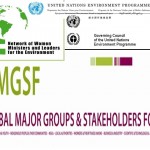
The day before the Governing Council got underway, the Network of Women Ministers and Leaders for the Environment (NWMLE) and UNEP hosted the second High-Level Gender Forum. Prof Andjelka Mihajlov participates, by invitation to “Gender Forum” as a member of the “Network of Environmental Women Ministers and Leaders”, as the former Minister for Protection of Natural Resources and Environment. The forum participants called upon ministers and environmental leaders to have dedicated officials for coordination of related gender and environment programmes and agreed to send a consolidated proposal on gender actions to be forwarded for consideration by UN Secretary General’s High-level Panel of Eminent Persons on the Post 2015 Development Agenda. The women ministers also requested nations to support the ratification of the Minamata convention on Mercury, which opens for signing in October.
More about meetings at www.unep.org . Moments from EASD participation are in Galleries of pictures. These activities are foreseen as the important international cooperation activities.
Prior to this, organisation participate at Rio+20 Conference.

